Overview
- Geography
-
creation:
Ust'-Labinsk (Russia)
- Credit Line
- United States Holocaust Memorial Museum Collection, Gift of Yahad-in Unum
Physical Details
- Extent
-
1 digital file : mp4.
Rights & Restrictions
- Conditions on Access
- There are no known restrictions on access to this material.
- Conditions on Use
- Restrictions on use. Yahad-In Unum retains copyright on the collection. Researchers agree not to reveal any personal identifiers if disclosed in witness testimony.
- Copyright Holder
- Yahad-In Unum
Keywords & Subjects
- Geographic Name
- Ust'-Labinsk (Russia) Krasnodarskii krai (Russia)
Administrative Notes
- Legal Status
- Permanent Collection
- Provenance
- Yahad-In Unum donated the oral history interview to the United States Holocaust Memorial Museum in 2019.
- Funding Note
- The cataloging of this oral history interview has been supported by a grant from the Conference on Jewish Material Claims Against Germany.
- Special Collection
-
The Jeff and Toby Herr Oral History Archive
- Record last modified:
- 2023-11-16 09:15:17
- This page:
- http://collections.ushmm.org/search/catalog/irn685062
Download & Licensing
- Request Copy
- See Rights and Restrictions
- Terms of Use
- This record is digitized but cannot be downloaded online.
In-Person Research
- Requires Research Visit
- Plan a Research Visit
Contact Us
Also in Yahad-in Unum oral history collection
Oral history interviews conducted in Ukraine, Russia, and Belarus by Yahad-in Unum.

Oral history interview with Yahad-In Unum interviewees 400U and 401U
Oral History
The two Ukrainian interviewees, born 1929 and 1931, discuss the treatment of Jews during the German occupation of Novozlatopil’ and Zaporizhzhia, Ukraine; the rounding up of Jews from the immediate area and surrounding villages; the shooting of Jews in trenches; and how some Ukrainians were forced to guard Jews waiting to be shot.
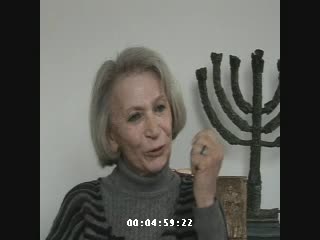
Oral history interview with Yahad-In Unum interviewee 576U
Oral History
The interviewee, a French Jewish woman who was a child in Ukraine and born in 1934, describes the Soviet takeover in Nizhyn, Ukraine; the arrival of the Germans after the war began; and how she was forced to march with other Jews to a camp in Mahilioŭ, Belarus.

Oral history interview with Yahad-In Unum interviewee 577U
Oral History
The interviewee, a Ukrainian woman born in 1916, discusses events in Khmel’nyts’kyĭ, Ukraine prior to and during the Holocaust; the famine of the early 1930s; and the deportation of the village's few Jews at the beginning of the war.

Oral history interview with Yahad-In Unum interviewee 578U
Oral History
The interviewee, a Ukrainian woman born in 1934, discusses how Jews from Khmel’nyts’kyĭ, Ukraine were deported soon after the arrival of German troops and how many Ukrainians were taken to Germany.

Oral history interview with Yahad-In Unum interviewee 579U
Oral History
The interviewee, a Ukrainian woman born in 1937, describes how she saw Jews gathered in the town of Khmel’nyts’kyĭ, Ukraine prior to their being shot.

Oral history interview with Yahad-In Unum interviewee 580U
Oral History
The interviewee, a Ukrainian Jewish man born in 1927, discusses the treatment of Jews during the German occupation of Vinnytsia, Ukraine; how German troops passed through town which was then occupied by Romanian troops; how approximately 600 Jews were crowded into a synagogue where they were kept for three days without food or water; how during this time Jewish houses were looted; the killing with knives and bayonets of about 30 men after the Jews were released from the synagogue; how the town’s Jews were kept in a ghetto in Ozarintsy, Ukraine, where the interviewee stayed for three years; life in the Ozarintsy ghetto; food aid received from Ukrainian neighbors; and the arrival in the ghetto of Bessarabian Jews from Mohyliv-Podilʹsʹkyĭ, Ukraine; and the formation of the Judenrat.

Oral history interview with Yahad-In Unum interviewee 581U
Oral History
The interviewee, a Ukrainian Jewish man born in 1929, describes the German occupation of Bratslav, Vinnyts’ka oblast', Ukraine, where more than half of the population were Jews; the arrival of Germans in July 1941; how the town’s Jews were gathered into the local sports stadium where they were held until December 31st; how Ukrainian neighbors provided food; the guards, who were mainly Romanian; the deportation of Jews to a labor camp in Pechera, Vinnyts’ka oblast', Ukraine; his experiences in the camp; and being liberated by Soviet troops in March 1943.

Oral history interview with Yahad-In Unum interviewee 582U
Oral History
The interviewee, a Ukrainian man born in 1926, describes the shooting of Jews in the area near Starokostiantyniv, Khmel'nyts'ka oblast', Ukraine.

Oral history interview with Yahad-In Unum interviewee 583U
Oral History
The interviewee, a Ukrainian woman, discusses how her uncle described to her the shooting of Jews in a trench near the towns of Starokostiantyniv, Khmel'nyts'ka oblast', Ukraine, as well as her own memories of seeing the camp in Starokostiantyniv, Ukraine.

Oral history interview with Yahad-In Unum interviewees 584U and 585U
Oral History
The interviewees, Ukrainian women born in 1926 and 1927, discuss how many Jews lived in their village, Shepetivka, Khmel'nyts'ka oblast', Ukraine, before the war; how thousands of Jews gathered in a ghetto surrounded by barbed wire soon after the arrival of the Germans; how Germans and Ukrainian police shot the village's Jews as well as Jews from the nearby villages, Polonne and Ostropol, over a period of weeks during the winter; and how some Ukrainians were tried after the war for aiding the Germans.

Oral history interview with Yahad-In Unum interviewee 586U
Oral History
The interviewee, a Ukrainian woman born in 1920, describes witnessing the shooting of Jews in Starokostiantyniv, Khmel'nyts'ka oblast', Ukraine in the winter following the German occupation.

Oral history interview with Yahad-In Unum interviewee 587U
Oral History
The interviewee, a Polish man born in 1934, discusses the local Polish population in Starokostiantyniv, Khmel'nyts'ka oblast', Ukraine before the war; how there were many Jews in the town until the arrival of the Germans; how Jews were forced into a ghetto enclosed by barbed wire; how his mother and many Ukrainians gave food to the Jews; and how the Germans shot many Jews.

Oral history interview with Yahad-In Unum interviewee 588U
Oral History
The interviewee, a Ukrainian woman born in 1916, describes the ghetto and shooting of Jews in an unspecified area near the city of Khmel'nyts'kyĭ, Ukraine.

Oral history interview with Yahad-In Unum interviewee 589U
Oral History
The interviewee, a Ukrainian woman born in 1925, discusses how no Jews lived in her village; how Jews were brought to her village from the nearby town of Khmel'nyts'kyĭ, Ukraine; and how many Jews were shot in a ravine by Germans and Ukrainian police.

Oral history interview with Yahad-In Unum interviewee 590U
Oral History
The interviewee, a Ukrainian woman born in 1929, describes how Jews were brought to her village (possibly near Leznevo, Khmel'nyts'ka oblast', Ukraine) during the summer, held for about a month in a camp, and then shot over the period of a few days near the village.
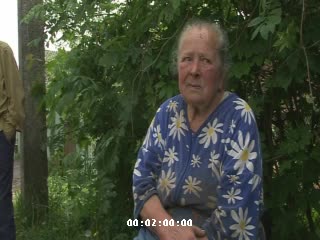
Oral history interview with Yahad-In Unum interviewee 591U
Oral History
The interviewee, a Ukrainian woman born in 1936, describes a ghetto area in what is possibly near Leznevo, Khmel'nyts'ka oblast', Ukraine; how Ukrainians, including her mother, threw food to the Jews; how Jews were later shot in nearby trenches by Ukrainian police; how some villagers participated in the shooting; how Soviet partisans were also shot; and how her father was among local Ukrainians forced to dig trenches and cover bodies.

Oral history interview with Yahad-In Unum interviewee 592U
Oral History
The interviewee, a Ukrainian man born in 1932, discusses his memories of a labor camp for Jews in his town; how he once accompanied his mother when she brought food to some Jews; how Jews from the camp were forced to build roads; his mother's description of the shooting of Jews; and how his father was required to dig burial trenches.

Oral history interview with Yahad-In Unum interviewee 593U
Oral History
The interviewee, a Ukrainian man born in 1932, discusses a nearby camp for Jews and how he heard gunfire during a month-long shooting of Jews.

Oral history interview with Yahad-In Unum interviewee 594U
Oral History
The interviewee, a Ukrainian woman born in 1929, discusses the presence of Jews in Yarmolyntsi, Khmel'nyts'ka oblast', Ukraine before the war; how, soon after the Germans arrived, they gathered the Jews in an area in the center of the town; how her mother gave food to some Jews; and how her mother described to her a several month-long shooting and burial of thousands of Jews and in a trench.

Oral history interview with Yahad-In Unum interviewee 595U
Oral History
The interviewee, a Ukrainian man born in 1929, describes columns of Jews being brought to Yarmolyntsi, Khmel'nyts'ka oblast', Ukraine, where they were shot in a nearby ravine; how Jews were also killed in nearby Sharivka and Horodok; and an instance of Jewish resistance when armed Jews shot at the Ukrainians guarding them.

Oral history interview with Yahad-In Unum interviewee 648U
Oral History
The interviewee, a Ukrainian man born in 1935, discusses how an eyewitness told him about the shooting of approximately one thousand Jews in the village of Balyn (Balin), Khmel'nyts'ka oblast', Ukraine carried out primarily by Ukrainian police. The interview takes place at the killing site.

Oral history interview with Yahad-In Unum interviewee 651U
Oral History
The interviewee, a Ukrainian woman born in 1928, describes witnessing the shooting of Jews in Smotrych, Khmel'nyts'ka oblast', Ukraine, which she says was carried out by Ukrainian police.
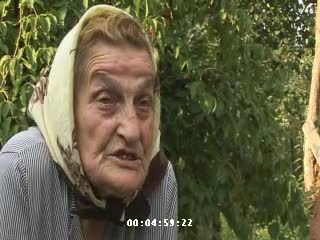
Oral history interview with Yahad-In Unum interviewee 659U
Oral History
The interviewee, a Ukrainian woman born in 1928, discusses the German occupation of Smotrych, Khmel'nyts'ka oblast', Ukraine; Jewish life in the region before the war; the arrival of Germans in 1941 and the subsequent shooting of Jews; and how she was taken to Germany to work on farms near Frankfurt.
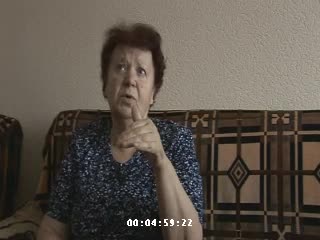
Oral history interview with Yahad-In Unum interviewee 661U
Oral History
The interviewee, a Ukrainian Jewish woman born in 1934, describes her experience living with her family in Khmel'nyts'ka oblast', Ukraine during the German invasion; how her family was hidden by neighbors and then later moved into a ghetto; life in the ghetto; her family’s escape from the ghetto; how her mother was seized and later shot along with most other Jews from the city; how she, her father, and sister hid with another Ukrainian family east of Kam'ianets'-Podil'sʹkyĭ, Ukraine; and her liberation by Soviet troops.

Oral history interview with Yahad-In Unum interviewees 682U and 683U
Oral History
The interviewees, a Ukrainian husband and wife born in 1929 and 1935, discuss the German occupation of Stara Ushytsia, Ukraine, including the shooting of 2,000 Jews from nearby villages by Ukrainian police and Germans.

Oral history interview with Yahad-In Unum interviewee 684U
Oral History
The interviewee, a Ukrainian man born in 1925, discusses the shooting of Jews in Myn'kivtsi, Ukraine in August 1941, as described to him by Ukrainians who had dug the burial trenches and watched the shooting; the arrival of Germans and how they brought Jews from Dunaïvtsi, Ukraine and other nearby towns to Myn'kivtsi, Ukraine; the perceived motives of Ukrainian collaborators; and how Ukrainians looted houses after Jews had been taken away.
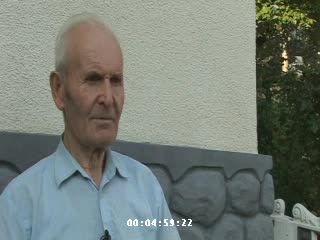
Oral history interview with Yahad-In Unum interviewee 698U
Oral History
The interviewee, a Ukrainian man born in the 1920s, discusses how he was required to help dig trenches near the village of Veliki Zhvanchik (Velikiy Zhvanchik), Khmel'nyts'ka oblast', Ukraine, where approximately 700 Jews were shot; how he was told about the killing of Jews by witnesses to the shootings; how Veliki Zhvanchik (Velikiy Zhvanchik) was first occupied by Hungarian troops until German troops arrived and organized the shooting of Jews; and how a few Jews who had special skills were not shot.

Oral history interview with Yahad-In Unum interviewee 14U
Oral History
The interviewee, a Ukrainian man, discusses the early German invasion of Ukraine in 1939; the German withdrawal and arrival of Soviet authorities; the subsequent German invasion in 1941; the German occupation of Borove (Borowe), L'vivs'ka oblast', Ukraine; how approximately 15,000 Jews lived in Borove (Borowe) before the war and were mostly traders with stores in their homes; how Jews were forced into a ghetto area where able-bodied persons were forced to work; how children and the elderly were first shot; and how, in 1942, all remaining Jews were shot and buried in trenches dug in the Jewish cemetery.

Oral history interview with Yahad-In Unum interviewee 15U
Oral History
The interviewee, a Ukrainian woman born in 1913, describes the shooting of Jews in Rava-Rus'ka, L'vivs'ka oblast', Ukraine that she heard about from eyewitnesses.
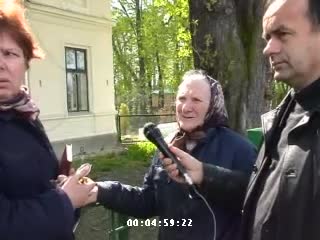
Oral history interview with Yahad-In Unum interviewee 16U
Oral History
The interviewee, a Ukrainian woman born in 1928, describes how prior to the German invasion, most of the Jews who lived in Kamianka-Buzka, L'vivs'ka oblast', Ukraine had little shops in their houses; how all of the town's Jews were killed in one day; and her memories of seeing the trench where they were shot and buried.

Oral history interview with Yahad-In Unum interviewee 59U
Oral History
The interviewee, a Ukrainian woman born in 1924, describes the arrival of German troops in Pyatydne (Pyatidni), Volyns'ka oblast', Ukraine; how the three Jewish families in the town were taken with Jews from nearby areas to Volodymyr-Volyns'kyĭ, Ukraine; how Ukrainians would throw bread over the ghetto fence; how Jews were shot over a two week period and buried in four trenches, which had been part of construction work to build an airfield when Poland ruled the area; and how local Ukrainians were requisitioned to fill in the trenches.
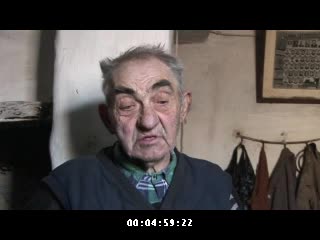
Oral history interview with Yahad-In Unum interviewee 62U
Oral History
The interviewee, a Ukrainian man born in 1922, describes the local ghetto where Jews were forced to work; being one of the local residents required to dig a trench in the Jewish cemetery in Torczyn, Volyns'ka oblast'; the shooting of Jews who were brought to the edge of the trench and made to undress; how one of the Jews, whom the interviewee knew, ran to him begging to be saved, but was immediately shot; and how the shooting was carried out by Germans and Ukrainian police who drank alcohol during the process.

Oral history interview with Yahad-In Unum interviewee 74U (1 of 2)
Oral History
The interviewee, a Ukrainian man born in 1936, discusses the arrival of German troops in Torgovitsa, Rivnensʹka oblastʹ, Ukraine; the establishment of the ghetto where Jews, Czechs, and Poles were confined; and the shooting of Jews by Germans, whom the interviewee says were drunk.

Oral history interview with Yahad-In Unum interviewee 78U
Oral History
The interviewee, a Ukrainian man born in 1935, describes the arrival of German troops in Ostrozhets (Ostrozec), Rivnens'ka oblast', Ukraine; how Jews were initially herded into a ghetto but soon thereafter were shot; how the one week-long shooting was carried out chiefly by Ukrainian police with machine guns; how he knew some of the victims because he had performed chores for them during the Sabbath; how, while he was watching Jews being led to the shooting area, he was seized by a guard who mistook him for a Jew, only to be saved when his grandmother intervened; how there were many Jews in the surrounding area prior to the war.

Oral history interview with Yahad-In Unum interviewee 142U
Oral History
The interviewee, a Ukrainian man born in 1936, describes the arrival of German troops in Borove (Borowe), L'vivs'ka oblast', Ukraine; the digging of trenches by Jews, which he witnessed as he tended cows in a nearby field; how Jews were brought to a ditch, made to undress, and forced into the ditch; and how the first group was killed with dynamite explosions and subsequent groups were shot.

Oral history interview with Yahad-In Unum interviewee 431U
Oral History
The interviewee, a Ukrainian man born in 1928, discusses the arrival of German troops in Rava-Rus'ka, L'vivs'ka oblast', Ukraine; the ghetto in Rava-Rus'ka and the shooting of Jews in the woods nearby in the summer of 1942; seeing Jews digging trenches and hearing gun shots while tending cows in the area; and approaching a covered trench where he saw the ground heaving.

Oral history interview with Yahad-In Unum interviewee 432U
Oral History
The interviewee, a Ukrainian woman born in 1929, describes the establishment of a ghetto in Rava-Rus'ka, L'vivs'ka oblast', Ukraine; how her family gave refuge to a Jewish family until they were betrayed to the Germans, who took the family away; how she was told that all the Jews in the ghetto were shot and buried in the Jewish cemetery; how Soviet prisoners of war were also shot near Rava-Rus'ka; and how her family helped hide a Soviet soldier.
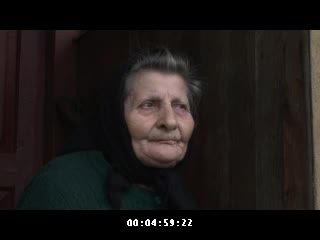
Oral history interview with Yahad-In Unum interviewee 433U
Oral History
The interviewee, a Ukrainian woman born in 1923, discusses a prisoner of war camp near Rava-Rus'ka, L'vivs'ka oblast', Ukraine; how many Jews lived and owned stores in Rava-Rus'ka before the war; how soon after their arrival, the Germans established a ghetto in the center of town; the shooting of many Jews on the streets; how she witnessed one Jewish woman being shot; and how the bodies were carried to the Jewish cemetery.

Oral history interview with Yahad-In Unum interviewee 434U
Oral History
The interviewee, a Ukrainian man born in 1928, describes events near the town of Rava-Rus'ka, Ukraine and the nearby village of Potelich, L'vivs'ka oblast', Ukraine, where there was a camp for French prisoners of war; seeing the French prisoners working in a local stone quarry; trading a cat to a French prisoner in exchange for some chocolate; how the few Jews in Potelich were taken by the Germans to Rava-Rus'ka; witnessing a group of about 15 Jews being forced to march in the direction of the Rava-Rus'ka Jewish cemetery by Germans with guns; and how the fact that Jews were being shot in Rava-Rus'ka was common knowledge.

Oral history interview with Yahad-In Unum interviewee 435U
Oral History
The interviewee, a Ukrainian woman born in 1931, discusses war-time events in Rava-Rus'ka, L'vivs'ka oblast', Ukraine, where many Jews lived before the war; how after the arrival of the Germans, Jews were forced into a ghetto in the center of town; how her sister worked within the ghetto in an egg-processing enterprise that employed Ukrainians as well as Jews; how Jews were taken by train to Belz, L'vivs'ka oblast', Ukraine, where they were shot; how she learned about a camp for Soviet prisoners of war in the area; and how she saw French prisoners of war from a nearby camp.

Oral history interview with Yahad-In Unum interviewees 436U and 437U
Oral History
The interviewees, two Ukrainian women born in 1922 and 1926, discuss wartime events in their towns. The first interviewee, who says she does not remember events very well, describes how preceding the shooting of Jews, a vehicle with a loudspeaker circulated throughout town warning people not to leave their houses; how one Jewish family asked to be hidden in her house, but it was already too crowded; how the Jewish family was taken by the Gestapo; how the shooting of Jews in the woods lasted for a number of days; and how years later, people frequently found shoes and other articles of clothing in the area. The second interviewee discusses the treatment of Soviet prisoners of war and the presence of French prisoners in the area; how she herself once gave food to a Soviet prisoner; how her mother witnessed Jews being shot; her job working as a cook for a German unit; and how she heard loudspeaker announcements warning of a death penalty for those giving refuge to Jews.
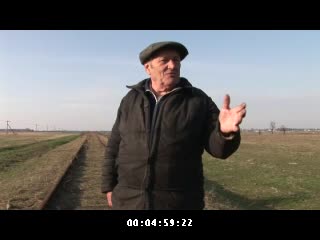
Oral history interview with Yahad-In Unum interviewee 438U
Oral History
The interviewee, a Ukrainian man born in 1930, discusses how in 1942 or 1943, Jews were taken in freight cars from Rava-Rus'ka, Ukraine, and possibly from Hungary and Romania, to Belz, Ukraine where they were shot; how he observed many such trains, the so-called Judenzugs, when he tended cows in fields bordering the tracks; how for a time there were three or four trains per week; witnessing people jumping from the trains, some of whom were able to run across the fields and reach the woods while others were shot by guards on the trains; and how on one occasion he saw a young child jump from a train, remain motionless on the ground, and how later a German guard shot the child, who was then buried by four Jewish prisoners. Note: this interview was recorded on a section of the railroad track between Rava-Rus'ka and Belz in L'vivs'ka oblast', Ukraine.
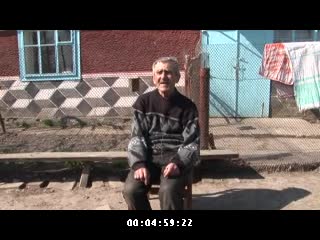
Oral history interview with Yahad-In Unum interviewee 439U
Oral History
The interviewee, a Ukrainian man born in 1932, discusses the arrival of German troops in Tsuman, Volyns'ka oblast', Ukraine, where many Jews lived before the war; the battle between German troops and partisans; and how many people were shot during the occupation, including partisans, party members, and approximately 300 Jews who were buried in two trenches.

Oral history interview with Yahad-In Unum interviewee 440U
Oral History
The interviewee, a Ukrainian man born in 1927, discusses war-time events in the area of Tsuman, Volyns'ka oblast', Ukraine; how that area was impoverished under Polish rule before the war; how his father was involved in the Ukrainian independence movement; the arrival of German troops; how some Jews lived in Tsuman while the majority lived in nearby Zofyuvka, Ukraine; the shooting of the area's Jews in August 1941; and, while working as a woodcutter, observing a train transporting approximately 200 Jews to a ditch dug in the forest where he later saw bodies laying uncovered.

Oral history interview with Yahad-In Unum interviewee 441U
Oral History
The interviewee, a Ukrainian man born in 1904, discusses the shooting of Jews near ditches in Polonka, Volyns'ka oblast', Ukraine; how Jews were made to disrobe, after which a rabbi said a prayer; and how a truck took away the Jews' belongings.

Oral history interview with Yahad-In Unum interviewee 442U
Oral History
The interviewee, a Ukrainian woman born in 1923, discusses the ghetto in Polonka, Volyns'ka oblast', Ukraine; how Ukrainians, including her family, sold milk and bread to the prisoners; and that she was aware that Jews were shot, but did not know any details.

Oral history interview with Yahad-In Unum interviewee 443U
Oral History
The interviewee, a Ukrainian woman born in 1922, discuses war-time events in Ostriv (Ostrov or Ostrow), Rivnens'ka oblast', Ukraine; how she knew of one Jewish family in Ostriv before the war; how German troops stayed in the city only to get food before they proceeded further east; and how she was sent to Germany in June 1942.

Oral history interview with Yahad-In Unum interviewee 444U
Oral History
The interviewee, a Ukrainian woman born in 1933, discusses events in Zalav'ya (Zalavye), Rivnens'ka oblast', Ukraine, where many Jews lived before the war; the ghetto where the Jews were confined; how, while working in the fields, she saw trenches being dug; how Jews from Zalav'ya (Zalavye) and the surrounding area were brought to the trenches and shot; and how she could hear the shooting.
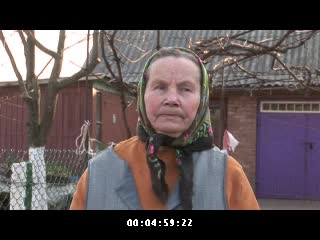
Oral history interview with Yahad-In Unum interviewee 445U
Oral History
The interviewee, a Ukrainian woman born in 1933, discusses wartime events in Zalav'ya (Zalavye), Rivnens'ka oblast', Ukraine; how Jews from Zalav'ya (Zalavye) and some surrounding villages were confined to a ghetto; how some Jews left the ghetto at night to barter belongings for food; observing the digging of trenches while tending cows; how Jews were assembled at trenches, made to disrobe, listened to a prayer by a Rabbi, and were shot by both Ukrainian and German guards; seeing the trenches soon after they were covered and noticing that the earth was moving in some places indicating that some of those buried were still alive; and how townspeople took Jewish belongings left at the trenches.

Oral history interview with Yahad-In Unum interviewee 446U
Oral History
The interviewee, a Ukrainian man born in 1935, discusses events in Torchyn, Volyns'ka oblast'; Ukraine, where he remembers seeing trucks with Jews being brought to a shooting site near the Jewish cemetery.
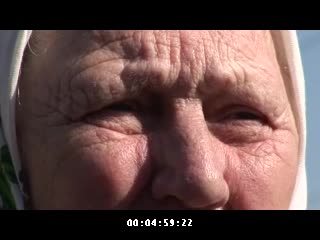
Oral history interview with Yahad-In Unum interviewee 447U
Oral History
The interviewee, a Ukrainian woman born in 1921, describes the ghetto in Torchyn, Volyns'ka oblast' , Ukraine, where local Jews were confined; how Jews were taken to work outside of the ghetto; and how Jews from surrounding villages were killed immediately after the arrival of German forces.

Oral history interview with Yahad-In Unum interviewee 448U
Oral History
The interviewee, a Ukrainian woman born in 1928, discusses wartime events in Kysylyn, Volyns'ka oblast', Ukraine, where there were a considerable number of Jews and one synagogue; how, after the arrival of German troops, the town's Jews were confined to a ghetto and made to work in a forest; how some Jews left the ghetto to find food; and her memories of hearing that Jews and Roma were shot and buried in ditches.

Oral history interview with Yahad-In Unum interviewee 449U
Oral History
The interviewee, a Ukrainian woman born in 1926, discusses wartime events in Kysylyn, Volyns'ka oblast', Ukraine; how she saw trucks transporting Jews to trenches to be shot; and how she heard from witnesses that a rabbi spoke to the Jews before they were shot.

Oral history interview with Yahad-In Unum interviewee 450U
Oral History
The interviewee, a Ukrainian man born in 1930, describes wartime events that occurred near Kysylyn, Volyns'ka oblast', Ukraine; how he saw the digging of trenches where Jews were shot and buried [the interview is conducted where the trenches were situated]; and how some Roma were also shot and buried in a separate trench.

Oral history interview with Yahad-In Unum interviewee 451U
Oral History
The interviewee, a Ukrainian woman born in 1929, discusses events surrounding the Holocaust in Gorokhov (Horokhiv), Volyns'ka oblast', Ukraine; an incident that occurred in 1942 when German troops, in reaction to the killing of a German soldier by partisans, seized her and other worshippers during a service at a Russian Orthodox church, and later released them; how there were many Jews and a synagogue in Gorokhov before the war; how when the Germans came, the town's Jews were confined to a ghetto, which was surrounded by wooden walls topped by barbed wire; how during the day, Jews were taken out in groups to work and at night Ukrainians threw food over the walls; her memories of seeing trucks moving through the center of the city taking Jews to be shot; and how she heard about the shooting site, where a rabbi told the Jews that it was their fate to die.

Oral history interview with Yahad-In Unum interviewee 452U
Oral History
The interviewee, a Ukrainian man born in 1927, discusses events in Gorokhov (Horokhiv), Volyns'ka oblast', Ukraine; the shooting of 150 men, including many Jews and a few Ukrainian officials; the shooting of 3,000 Jews at another site; the ghetto from which Jews were taken to work; and how the ghetto inmates bartered for food.

Oral history interview with Yahad-In Unum interviewee 453U
Oral History
The interviewee, a Ukrainian woman born in 1927, discusses events in Berestechko (Beresteczko), Volyns'ka oblast', Ukraine, where before the war some 2,000 Jews lived; pre-war conditions in the city; the initial welcoming of German troops on the part of many anti-Soviet Ukrainians; the confining of Jews in a ghetto; digging of trenches and shooting of Jews at a site near city; and the shooting of itinerant Roma.

Oral history interview with Yahad-In Unum interviewee 454U
Oral History
The interviewee, a Ukrainian woman born in 1929, discusses events in Berestechko (Beresteczko), Volyns'ka oblast', Ukraine; pre-war Jewish life in the city; arrival of Germans and establishment of a ghetto; passing of food by Ukrainians to ghetto inmates; and shooting of Jews in trenches.

Oral history interview with Yahad-In Unum interviewee 455U
Oral History
The interviewee, a Ukrainian woman born in 1924, discusses events in Berestechko (Beresteczko), Volyns'ka oblast', Ukraine; Jewish life before the war; the arrival of Germans and formation of a ghetto; the effort by Jews to obtain food; and the shooting of Jews, Roma, and Ukrainian nationalists.

Oral history interview with Yahad-In Unum interviewee 456U
Oral History
The interviewee, a Ukrainian woman born in 1931, discusses events in Senkevychivka, Volyns'ka oblast', Ukraine; Jewish life before the war; the arrival of Germans and the hiding of some Jews by local Czech families; the establishment of the ghetto; and the shooting of Jews at a trench.

Oral history interview with Yahad-In Unum interviewee 457U
Oral History
The interviewee, a Ukrainian woman born in 1927, discusses events near Senkevychivka and Gorochov (Horokhiv), Volyns'ka oblast', Ukraine; the taking of the three Jewish families in the neighborhood to the ghetto in Gorochov; and the shooting of Jews near Gorochov.

Oral history interview with Yahad-In Unum interviewee 458U
Oral History
The interviewee, a Ukrainian woman born in 1926, describes events in Senkevychivka, Volyns'ka oblast', Ukraine, where many Jews lived before the war; the digging of trenches and how Jews were brought to the site; and how she witnessed from a distance as Jews were shot.

Oral history interview with Yahad-In Unum interviewee 459U
Oral History
The witness, a Ukrainian woman born in 1922, discusses the shooting of Jews near Kolodezhno (Kolod'ya or Kolodja), Volyns'ka oblast', Ukraine, which she observed from a distance; Jews being brought by trucks to a trench; and the shooting of Jews inside the trench by a German police officer wearing a long white coat.

Oral history interview with Yahad-In Unum interviewee 460U
Oral History
Interviewee, a Ukrainian man born in 1937, discusses events in Senkevychivka, Volyns'ka oblast', Ukraine; the ghetto from which Jews were allowed to leave during the day; the shooting of Jews in a trench by Germans wearing white coats; the movement of earth covering the trench, indicating that some of the people buried were still alive; and the killing of a local German official by Ukrainian nationalists.

Oral history interview with Yahad-In Unum interviewee 461U
Oral History
The interviewee, a Ukrainian woman born in 1934, discusses the arrival of German and Hungarian troops in Samary, Volyns'ka oblast', Ukraine; the house-to-house round-up of Jews; the efforts of some Jews to hide; the shooting of a family that had given refuge to a Jew; watching with other children as a trench was dug in the nearby woods; and the shooting of Jews, during which local Ukrainians were held inside a school building.

Oral history interview with Yahad-In Unum interviewee 462U
Oral History
The witness, a Ukrainian man born in 1922, discusses the arrival of Germans in Samary, Volyns'ka oblast', Ukraine; the round up of Jews by Germans and the Russians who were serving them; the digging of three trenches in the area; the efforts of Jews to hide; the shooting of Jews; observing the earth move after the trench was covered; and the burning of all the houses in the area.

Oral history interview with Yahad-In Unum interviewee 463U
Oral History
The interviewee, a Ukrainian woman, discusses the round up and shooting of Jews in Samary, Volyns'ka oblast', Ukraine; the march of a long column of Jews from Samary and other areas to an execution site; and the participation of guards of various nationalities, including Ukrainian and Russian.
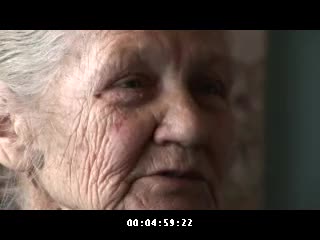
Oral history interview with Yahad-In Unum interviewee 464U
Oral History
A Ukrainian woman born in 1934 discusses the sheltering by her family of a teenage Jewish girl throughout the war near Dubnyky, ZHytomyrs'ka oblast', Ukraine; keeping in touch with the girl after the war; and the existence of a ghetto in Bus'k, L'vivs'ka oblast', Ukraine.
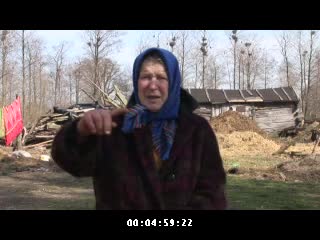
Oral history interview with Yahad-In Unum interviewee 465U
Oral History
A Ukrainian woman, born in 1933, discusses events in Kortelisy, Volyns'ka oblast', Ukraine; the arrival of the Germans; the shooting of Jews in a nearby ditch; and the burning of all the houses in the village.
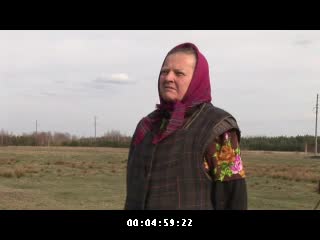
Oral history interview with Yahad-In Unum interviewee 467U
Oral History
The interviewee, a Ukrainian woman born in 1952, discusses what her relatives had told her about events near Kortelisy, Volyns'ka oblast', Ukraine; the shooting of Jews brought by trucks to a large ditch; and the shooting of Soviet partisans in the village of Borka.

Oral history interview with Yahad-In Unum interviewee 468U
Oral History
The interviewee, a Ukrainian woman born in 1925, discusses events in Prokhud (Prokhid), Volyns'ka oblast', Ukraine; how many Jews emigrated from Prokhid before the war; the seizure of a neighboring Jewish family by Germans; the shooting of Jews from the area in Ratne, Volyns'ka oblast', Ukraine; and being taken to Germany in 1942 as a laborer.

Oral history interview with Yahad-In Unum interviewee 469U
Oral History
The interviewee, a Ukrainian woman born in 1935, discusses events in Prokhud (Prokhid), Volyns'ka oblast', Ukraine; seeing Jews being brought by trucks to a ditch and led in pairs to the edge of a ditch where they were shot; and the shooting of a Ukrainian family that had hidden Jews.
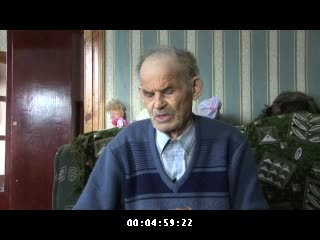
Oral history interview with Yahad-In Unum interviewee 470U
Oral History
The interviewee, a Ukrainian man born in 1924, describes the shooting of Jews in the area of Prokhud (Prokhid), Volyns'ka oblast', Ukraine, which he witnessed while hiding in a nearby field; Jews being brought via trucks to a ditch; and the shooting of Jews, including children, by German and Ukrainian police.

Oral history interview with Yahad-In Unum interviewee 471U
Oral History
The interviewee, a Ukrainian man born in 1928 [French interpreter mistakenly says 1924], describes the shooting of many Jews and 50 to 60 Roma in Ratne, Volyns'ka oblast', Ukraine; the shooting of three Ukrainians for refusing to dig a ditch; and the names of some Ukrainian guards.
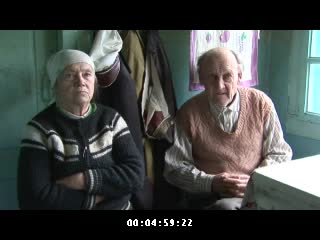
Oral history interview with Yahad-In Unum interviewees 472U and 473U
Oral History
The interviewees, a Ukrainian man born in 1930 and a woman [no date of birth cited], describe events in Ratne, Volyns'ka oblast', Ukraine; the arrival of German troops; the rounding up of Jews and Roma and how some were taken to nearby Prokhud (Prokhid), Ukraine; the shooting of Jews and Roma at a ditch, which Witness 472 observed while tending livestock; and the subsequent escape from a ditch of a wounded Jew.

Oral history interview with Yahad-In Unum interviewee 474U
Oral History
The interviewee, a Ukrainian man born in 1922, discusses the shooting of Jews near Kamin'-Kashyrs'kyi, Volyns'ka oblast', Ukraine; being requisitioned to help dig a large ditch, in which over a thousand Jews were killed; the story his brother-in-law, a member of the Ukrainian police, told him about participating in the shooting of Jews; the killing of some Roma; other events in Kamin'-Kashyrs'kyi; the presence before the war of many Jews in the town, most of them shop-keepers; the establishment of a ghetto after the arrival of the Germans; forced labor by Jews; digging a ditch; the motives of his brother-in-law and other Ukrainians who served as members of the police; and the Ukrainian police uniforms and weapons.

Oral history interview with Yahad-In Unum interviewee 475U
Oral History
The interviewee, a Ukrainian woman born in 1932, discusses events in Rakiv Lis, Volyns'ka oblast', Ukraine, which is near Kamin'-Kashyrs'kyi, Ukraine; the seizure of a Jewish classmate by Germans; the herding of Jews into an area in the center of Kamin'-Kashyrs'kyi; hearing the shooting of Jews; and hiding one Jewish family in Rakiv-Lis.

Oral history interview with Yahad-In Unum interviewee 476U
Oral History
The interviewee, a Ukrainian woman born in 1920, discusses events in Vakhivka (Vakhovka, Wachowka) and Kovel', Volyns'ka oblast', Ukraine; the ghetto in Kovel'; the transporting of Jews from Kovel' by freight trains to ditches in a field near Vakhivka; hearing the shooting of Jews and how people later described the scene to her; and a camp for Soviet prisoners of war in Kovel'.

Oral history interview with Yahad-In Unum interviewee 477U
Oral History
The interviewee, a Ukrainian man born in 1926, discusses events in Volya-Lyubityvs'ka, Volyns'ka oblast', Ukraine; the round-up of Jews and their confinement in a ghetto; twenty young Jews who were able to hide, but were later revealed by a Russian and shot; observing the transport of Jews to the shooting site; and hearing about the shooting of 700 Jews.
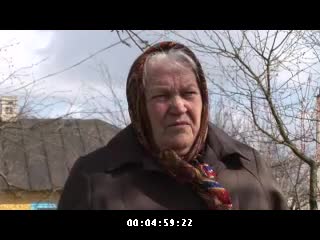
Oral history interview with Yahad-In Unum interviewee 478U
Oral History
The interviewee, a woman born in 1930, describes how her family gave refuge to a Jewish father and daughter in Gishyn, Volyns'ka oblast', Ukraine and how her father was killed in 1944 when retreating Germans burned their house.

Oral history interview with Yahad-In Unum interviewee 479U
Oral History
The interviewee, a Ukrainian man born in 1928, discusses events near Bakhiv, Volyns'ka oblast', Ukraine; being requisitioned to help cover the bodies of Jews who had just been shot in a ditch near his house; hearing the repeated sounds of machine-gun fire as Jews were being shot; being told by local witnesses how the shootings were carried out; observing the victims as they were brought to the site by a train with more than 10 cars; the unloading of the trains; how bodies and clothing were arranged; and the participation of Ukrainian police and the use of Soviet prisoners-of-war. The recording also includes a guide showing the French interviewer and his team the site of three ditches, in which 9,000 Jews were shot, near Bakhiv as well as close-ups of a portion of a skull and a bone which the team finds in the tall grass.
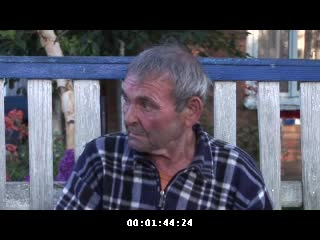
Oral history interview with Yahad-In Unum interviewee 79U
Oral History
The interviewee, a Ukrainian man born in 1930, discusses the shooting of Jews in Ostrozhets, Rivnens'ka oblast', Ukraine; digging a ditch about 200 meters from his house; how the Jews were brought by truck to the ditch; hearing gunfire while he was confined to his house by guards; a shooting he was told about; how one victim was shot by a German soldier while trying to escape; seeing an earth-covered ditch move for two days after the shooting; the subsequent killing of other Jews; and the participation of local guards.

Oral history interview with Yahad-In Unum interviewee 480U
Oral History
The interviewee, a Ukrainian woman born in 1922, discusses events in the area of Kostyantynivka, Mykolaivs'ka oblast', Ukraine; the presence of Jews before the war; the round up of Jews by the Germans; the shooting of Jews at a ditch in the neighboring village of Bogdanovka (Bohdanivka), which she briefly witnessed through binoculars; how Jews were brought from Moldova and other areas and were held on a pig farm; the killing of 60,000 Jews in the area; the participation of the Ukrainian police in the shooting; how local residents participated in the disposition of the victims' clothing; the burning of some bodies; and her speculation on the motives of the Ukrainian police.

Oral history interview with Yahad-In Unum interviewee 481U
Oral History
The interviewee, a Ukrainian woman born in 1930, briefly discusses the presence of Jews in Kostiantynivka, Donets'ka oblast', Ukraine and how the Germans seized a young Jewish girl who was her close friend.
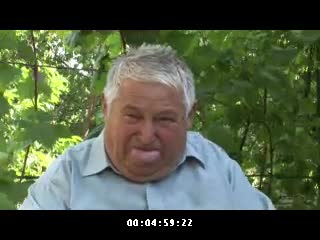
Oral history interview with Yahad-In Unum interviewee 482U
Oral History
The interviewee, a Ukrainian man born in 1931, discusses events in Kostiantynivka and Bogdanovka, Mykolaïvs'ka oblast', Ukraine; presence of Jews in Kostiantynivka before the war; the arrival of the Germans; the transport of Jews from the area and from other cities to a camp located on a pig farm in Bogdanovka; seeing the shooting of Jews in nearby ditches on a number of occasions; how the shootings were carried out; and the burning of bodies.

Oral history interview with Yahad-In Unum interviewee 483U
Oral History
The interviewee, a Ukrainian man born in 1930, discusses events in Bogdanovka, Mykolaïvs'ka oblast', Ukraine; the transport of Jews from many parts of Ukraine to a camp located on a pig farm in Bogdanovka; how his family hid a Jewish girl; the marching of Jews to ditches where they were shot; the conditions in the camp; the deaths of many Jews from hunger and disease; and the shooting of individual Jews by Ukrainian guards.

Oral history interview with Yahad-In Unum interviewee 484U
Oral History
The interviewee, a woman born in 1925, discusses events in Kostiantynivka and Bogdanovka, Mykolaïvs'ka oblast', Ukraine; the evacuation of many Jews of Kostiantynivka before the arrival of German troops in the area; the transport of Jews from Odessa and other areas to a camp on a pig farm in Bogdanovka; the shooting of Jews at a ditch, which was visible from her house; and the escape of a wounded victim.

Oral history interview with Yahad-In Unum interviewee 485U
Oral History
The interviewee, a Ukrainian woman born in 1925, assisted by a younger woman, discusses events in Pokatilovo, Ukraine, which she said was 19 km from Kostiantynivka, Mykolaïvs'ka oblast', Ukraine; the presence of Jews before the war; the efforts of Jews to hide from Germans; hearing about the shooting of Jews; and the participation of local police.

Oral history interview with Yahad-In Unum interviewee 486U
Oral History
The interviewee, a Ukrainian man born in 1924, discusses events in Kostiantynivka and Bogdanovka, Mykolaïvs'ka oblast', Ukraine; observing Jews from the prison camp in Bogdanovka drawing water from the Bug River; the shooting of Jews in a nearby ditch; the burning of bodies; and the escape of a few Jews across the frozen river.

Oral history interview with Yahad-In Unum interviewee 487U
Oral History
The interviewee, a Ukrainian man born in 1937, discusses events in Bogdanovka, Mykolaïvs'ka oblast', Ukraine; the shooting of one family by Ukrainian guards; a camp for Jews on a local pig farm; Jews from the camp drawing water from the Bug River; exchanging gold and belongings for food; the forced labor of Jews; the mass shootings; the burning of bodies; the role of Romanian and Ukrainian guards; and the presence of Roma in the camp.

Oral history interview with Yahad-In Unum interviewee 488U
Oral History
The interviewee, a woman born in 1934, discusses events in Kostiantynivka, Mykolaïvs'ka oblast', Ukraine during the Holocaust.

Oral history interview with Yahad-In Unum interviewee 489U
Oral History
The interviewee, a Ukrainian woman born in 1927, describes events she witnessed and heard about while living in Vynogradny Sad, Mykolaïvs'ka oblast', Ukraine; how her neighbors hid a Jewish girl throughout the war; the columns of Jews being led on several occasions to a pig farm, where they were subsequently shot; witnessing the beatings of Jews; and throwing food to the marching Jews.

Oral history interview with Yahad-In Unum interviewee 490U
Oral History
The interviewee, a Ukrainian woman born in 1922, discusses events in the area of Ustya, Vinnyts'ka oblast', Ukraine; the occupation of Ustya by Germans, who were soon replaced by Romanian troops; how Jews were held in a local school; the efforts of Jews to exchange belongings for food; the Ukrainian guards' extraction of gold teeth from Jewish prisoners; and the shooting of local Jews and Jews from Bershad' at a ditch in a nearby forest.

Oral history interview with Yahad-In Unum interviewee 491U
Oral History
The interviewee, a Ukrainian woman born in 1915, discusses how Jews were brought to Ustya, Vinnyts'ka oblast', Ukraine; how they were held for an extended period of time; and the efforts of Jews to barter belongings for food.
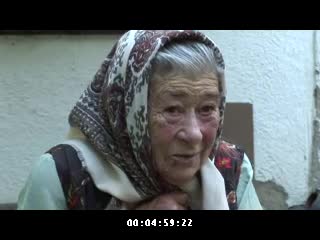
Oral history interview with Yahad-In Unum interviewee 492U
Oral History
The interviewee, a Ukrainian woman born in 1919, discusses events in Ustya, Vinnyts'ka oblast', Ukraine; the occupation first by German and then Romanian troops; how her family hid a Jewish girl from Bessarabia; how Jews were held on a pig farm; the shooting of Jews at a ditch in the forest; disease and hunger among Jewish prisoners; and how she assisted the Soviet partisans and the prisoners of war who had escaped.

Oral history interview with Yahad-In Unum interviewee 493U
Oral History
The interviewee, a Ukrainian man born in 1935, discusses events in Ustya, Vinnyts'ka oblast', Ukraine; the replacement of German troops by Romanian forces; how Jews were brought from nearby Bershad' and from Romania to the Ustya area; holding of Jews in a large building; shooting of Jews in groups; and the participation of Ukrainian police.

Oral history interview with Yahad-In Unum interviewee 494U
Oral History
The interviewee, a Ukrainian woman born in 1930, discusses events in Potashnya, Vinnyts'ka oblast', Ukraine; the arrival of German and then Romanian forces; how Jews were brought to the area and held in a former stable; the Jews seeking food in the village; and observing bodies being carted by wagon away from stable area.

Oral history interview with Yahad-In Unum interviewee 495U
Oral History
The interviewee, a Ukrainian woman born in 1915, discusses events in Potashnya, Vinnyts'ka oblast', Ukraine; how Jews were brought to the area from Bershad' and elsewhere; a camp for Jews in a former stable; the role of Ukrainian guards and how they extracted gold teeth from Jews; and the trading by Jews of jewelry and other possessions for food.

Oral history interview with Yahad-In Unum interviewee 496U
Oral History
The interviewee, a Ukrainian man born in 1933, discusses events in Potashnya, Vinnyts'ka oblast', Ukraine; his brief arrest after aiding partisans; how Jews were brought to Potashnya and confined in a former stable; the efforts of Jews to seek food in the local area; the presence of Ukrainian guards; and the burying of dead Jews in a ditch in the woods.

Oral history interview with Yahad-In Unum interviewee 497U
Oral History
The interviewee, a Ukrainian man born in 1928, discusses events in Velyka Kyriivka, Vinnyts'ka oblast', Ukraine; the arrival of German and then Romanian forces; how Jews were brought to the area and how many of them were quartered with Ukrainian residents for whom they worked; the languages spoken by Jews; the extraction of gold teeth from Jews soon after their arrival; how Jews were taken to a large ditch where they were buried alive; and the escape of one Jew.

Oral history interview with Yahad-In Unum interviewee 498U
Oral History
The interviewee, a Ukrainian woman born in 1911, discusses events in Velyka Kyriivka, Vinnyts'ka oblast', Ukraine; the seizure of Jews; the efforts of Jews to hide; how Jews were thrown into a ditch; and the question of whether Jews were buried alive.

Oral history interview with Yahad-In Unum interviewee 499U
Oral History
The interviewee, a Ukrainian woman born in 1931, discusses events in Velyka Kyriivka, Vinnyts'ka oblast', Ukraine; how Jews were held in a large stable; the Jews seeking food and water from local residents; how Jews were taken to a nearby ditch, which had served as a storage area for the beet crop; the question of whether Jews were buried alive; and the participation of Ukrainian guards, some of whom she names. The interviewee and the camera crew visit the sites of the stable and ditch.

Oral history interview with Yahad-In Unum interviewee 500U
Oral History
The interviewee, a Ukrainian man born in 1929, discusses events in Yalanets', Vinnyts'ka oblast', Ukraine; the occupation of a village by Romanian forces; how thousands of Jews were brought to the area by Germans; the uniforms of German and Romanian troops; how some Jews were housed in a stable while others were held in a cow barn; the ability of Jews to come to the village to seek food from residents, including his mother; the burying of Jews who died in a nearby ditch; how the Jews were not shot before being buried; and the shooting of four partisans.

Oral history interview with Yahad-In Unum interviewee 501U
Oral History
The interviewee, a Ukrainian woman born in 1933, discusses events in Velyka Kyriivka, Vinnyts'ka oblast', Ukraine; seeing the earth move at a filled-in ditch; how the Romanian forces buried the Jews alive; a camp for Jews in a former stable; the frequent entry into the camp by the witness and other local children to play with Jewish children; the conditions in the camp; and languages spoken by Jews.

Oral history interview with Yahad-In Unum interviewee 502U
Oral History
The interviewee, a Ukrainian woman born in 1928, discusses events in Velyka Kyriivka, Vinnyts'ka oblast', Ukraine; her visits to a village of Jewish artisans from nearby Bershad' before the war; the transportation of Jews to Velyka Kyriivka after the war began; the relative leniency of the occupying Romanian forces; a camp for Jews in a former stable area; the Jews brought on foot from Bessarabia; the eventual transport of Jews across the Bug River to the German-occupied territory; and her ignorance to the ultimate fate of the Jews.

Oral history interview with Yahad-In Unum interviewee 503U
Oral History
The interviewee, a Ukrainian woman born in 1927, discusses events in Lugova, Vinnyts'ka oblast', Ukraine; the arrival of Hungarian and German forces and later occupation by Romanians; the relative leniency of Romanians compared to Germans; how Jews were brought from Bessarabia, Bukovina, and from other Ukrainian towns to the area; a camp for Jews on a former collective farm; the role of Ukrainian police and their organization; how Jews lived, traded property for food, and worked for Ukrainian families; the deaths from hunger and typhus; the burial of Jews in a trench in the woods; and how residents of nearby Osiivka, Ukraine were shot by a special Romanian "punitive detachment" because of their partisan activity.

Oral history interview with Yahad-In Unum interviewee 504U
Oral History
The interviewee, a Ukrainian man born in 1926, discusses events in Ternivka, Vinnyts'ka oblast', Ukraine; the occupation by German troops of Ternivka, where some 2,500 Jews lived; the shooting of Jewish residents and Jews brought from elsewhere; the shootings carried out by Ukrainians dressed in German uniforms; the digging of trenches where Jews were shot and buried; seeing the ground move for days after the shooting; the looting of Jewish property and the destruction of houses; his later military service; and his participation in the liberation of Auschwitz.

Oral history interview with Yahad-In Unum interviewee 505U
Oral History
The interviewee, a Ukrainian woman born in 1928, discusses the shooting of Jews near Ternivka, Vinnyts'ka oblast', Ukraine by German forces; her forced participation in covering the bodies; arranging victims in layers in a large trench; how local women and girls were made to cover the bodies; the selection of a few Jewish artisans at the execution site to work for the German kommandatura; the disposition of Jewish clothing and valuables; and the dismantling of houses.
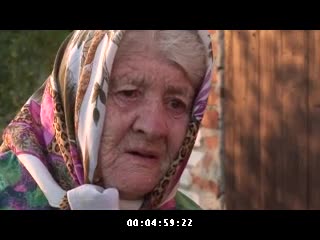
Oral history interview with Yahad-In Unum interviewee 506U
Oral History
The interviewee, a Ukrainian woman born in 1926 with the family name Goffman, discusses being evacuated from Sobolivka, Vinnyts'ka oblast', Ukraine before the German occupation; living in Kamensk-Ural'skiy, Sverdlovskaya oblast', Russia; the family's decision to flee; and their post-war return to Sobolivka, where all the Jews had been killed.

Oral history interview with Yahad-In Unum interviewee 507U
Oral History
The interviewee, a Ukrainian woman born in 1915, describes the columns of Jews being marched through Balanivka, Vinnyts'ka oblast', Ukraine; the role of Romanian and Ukrainian guards; the housing of Jews during stops in Balanivka; bartering for food; and deaths from hunger and disease.

Oral history interview with Yahad-In Unum interviewee 508U
Oral History
The interviewee, a Ukrainian woman born in 1926, discusses Jews being marched through Balanivka, Vinnyts'ka oblast', Ukraine; the beatings performed by guards; and Jews seeking shelter and bartering for food.

Oral history interview with Yahad-In Unum interviewees 509U and 510U
Oral History
Two Ukrainian women, one born in 1929 and one in 1926, discuss columns of Jews being marched through Balanivka, Vinnyts'ka oblast', Ukraine; the beatings performed by guards; the housing of Jews, who remained temporarily in Balanivka; bartering for food; the burial of Jews who died; and a Jewish woman who stayed with one witness's family for two months.

Oral history interview with Yahad-In Unum interviewee 511U
Oral History
The interviewee, a Ukrainian woman born in 1931, discusses columns of Jews being marched through Balanivka, Vinnyts'ka oblast', Ukraine; how Jews stayed for about a month, mostly in stables; bartering for food; and how those who died were buried in a ravine.

Oral history interview with Yahad-In Unum interviewee 512U
Oral History
The interviewee, a Ukrainian man born in 1927, discusses events in Balanivka, Vinnyts'ka oblast', Ukraine; the columns of Jews marched through and staying temporarily in Balanivka; the relative leniency of Romanian guards compared to German forces on the other side of the Bug River; how Jews survived; the overnight stay of Jews in the witness's house; the outbreaks of typhus; the administration during the Romanian occupation; seeing the ghetto in nearby Bershad'; and the frequent unearthing of human remains by agricultural machinery in the 1950s.
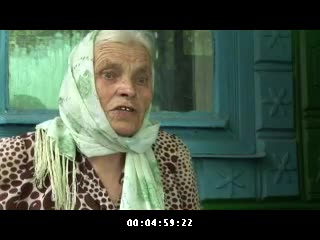
Oral history interview with Yahad-In Unum interviewee 513U
Oral History
The interviewee, a Ukrainian woman born in 1926, discusses events in Bershad', Vinnyts'ka oblast', Ukraine; her contact with Bershad's prewar Jewish community; the evacuation of many Jews before the arrival of German forces; the Romanian occupation; the relative leniency of Romanians compared to German troops and Ukrainian police; how Jews were brought to Bershad' from Chernivtsi, Bukovina, and other areas; the Bershad' ghetto; how his family hid three Jewish boys; the Romanian administration; the burial of Jews who died from hunger and disease; the absence of any mass shootings; the retreat of the Romanians; and the arrival of Soviet forces.

Oral history interview with Yahad-In Unum interviewee 514U
Oral History
The interviewee, a Ukrainian woman born in 1928, discusses the columns of Jews being marched through Floryne near Bershad', Vinnyts'ka oblast', Ukraine; the housing of Jews for brief periods in a stable; the burial of Jews who died from disease and hunger; the relative leniency of Romanian forces; the Romanian administration; and the absence of any mass shootings.

Oral history interview with Yahad-In Unum interviewee 515U
Oral History
The interviewee, a Ukrainian woman born in 1924, describes columns of Jews being marched through Floryne, Vinnyts'ka oblast', Ukraine; the temporary housing of Jews in a stable and Ukrainian homes; the burial of many Jews who died of hunger and disease; the requisitioning of local residents to dig burial trenches; the relative leniency of Romanians, who were easily bribed; and the absence of any mass shootings.
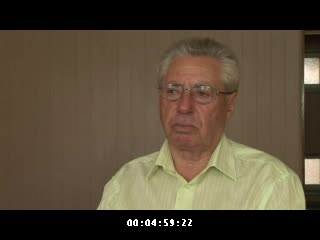
Oral history interview with Yahad-In Unum interviewee 516U
Oral History
The interviewee, a Ukrainian-Jewish man born in 1934, discusses events in Ternivka and Bershad', Vinnyts'ka oblast', Ukraine; the arrival of German forces in Ternivka; the behavior of the German military who used his house as headquarters and warned his family that special forces would arrive to kill the Jews; the awareness of Ternivka's Jews that Jews in occupied areas were being killed; the initial period when Jews were put to work constructing the Uman'-Gaysin road; the establishment of a Judenrat; the local German and Ukrainian administrations; the ability of Jews to move about and of many to flee during the beginning of the occupation; the arrival of special forces in May 1942 to carry out the shootings; the week-long digging of a large ditch; hiding with his family in a specially constructed secret refuge; how Jews were assembled in a local stadium and driven to a ditch 2 km from the town; how Jews who were artisans and had special skills were selected out of the pit; hearing about the shooting of the Jews from his uncle, who was among the artisans kept alive; how his aunt escaped from the ditch; the disposal of Jewish property and belongings; the establishment of a ghetto in Ternivka; fleeing with his family to Bershad'; the Bershad' ghetto; how the local Ukrainians assisted the Jews; the tradition of good relations in Bershad' between ethnic and religious groups; and the lower survival rates among non-Ukrainian speaking Jews from Bukovina.

Oral history interview with Yahad-In Unum interviewee 517U
Oral History
The interviewee, a Ukrainian-Jewish man born in 1927, discusses events in Manivtsi, Orlyntsi, and Kul'chyny, Khmel'nyts'ka oblast', Ukraine; the arrival of German forces in Manivtsi and their welcome by some Ukrainians; establishment of a ghetto in Kul'chyny for Jews from Manivtsi and other towns; ghetto life; Jewish and Ukrainian police; his transportation with other able-bodied males to Orlyntsi for two months; performing exhausting work in Orlyntsi; the preparation for the shooting of Jews; the digging of a trench by some 120 men; being transported by truck with his mother and four siblings to the shooting site; escaping from the moving truck and evading his pursuers; how his brother attempted to run from the trench area but failed; the survival of one woman who climbed unhurt from the trench; how a Ukrainian school principal helped him by giving him Ukrainian identity papers; his work on a state farm as a driver; seeing his father, who was an inmate of the nearby Starokostiantyniv ghetto; the later destruction of the ghetto and the killing of Jews, including his father; and his name and the names of his parents and siblings.
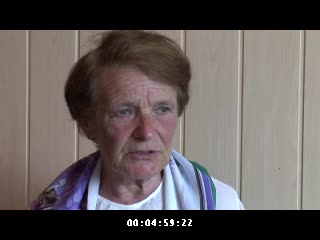
Oral history interview with Yahad-In Unum interviewee 518U
Oral History
The interviewee, a Ukrainian-Jewish woman born in 1936, discusses events in Terlivka, Khmel'nyts'ka oblast', Ukraine, where three Jewish families lived before the war; a brief and relatively mild occupation by German forces; the arrival of Ukrainian police; the round up and shooting of Jews in the area; her family hiding with various Ukrainian families; the shooting of several Terlivka Jews, including some of her relatives in September 1943; how she and her mother received assistance from several Ossetians who arrived with the retreating Germans; the arrival of Soviet liberation forces; her postwar career; and Russian and Ukrainian antisemitism.

Oral history interview with Yahad-In Unum interviewee 519U
Oral History
The interviewee, a Ukrainian woman born in 1928, discusses events in Zabolottya, Vinnyts'ka oblast', Ukraine; the pre-war presence of Jews; the arrival of German forces and a local church service welcoming them; the change of attitudes; how stealing and burning began; the establishment of a ghetto for the town's Jews; how Jews wore yellow stars; the subsequent shooting of Jews at various sites near town; watching from her window as Jews were transported to killing sites; and the Ukrainian police.

Oral history interview with Yahad-In Unum interviewee 520U
Oral History
The interviewee, a Ukrainian man born in 1930, discusses events in Zabolottya, Ukraine; the Jewish presence before the war; the arrival and brief presence of German forces; the rounding up of Jews; being told about the digging of a trench at a nearby lake; and the shooting of Jews by Ukrainian police, including one of his friends.
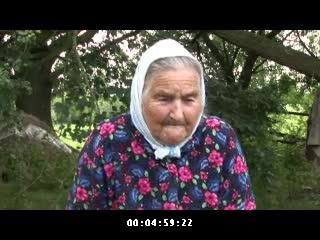
Oral history interview with Yahad-In Unum interviewee 521U
Oral History
The interviewee, a Ukrainian woman born in 1920, discusses events in Zabolottya, Ukraine; the prewar Polish administration; the presence of many Jews, who were chiefly traders; the arrival of German troops; the battle with Soviet forces; the departure of her husband with the retreating Soviet troops; the German local headquarters in the center of town; witnessing the transportation of Jews to a shooting site near the lake; the shooting of the Jews by Germans; seeing the earth covering the trench move days after the shooting; and her forced participation in sorting through and repairing clothing left by the Jews at the shooting site. The video includes scenes of the shooting site.

Oral history interview with Yahad-In Unum interviewee 522U
Oral History
The interviewee, a Ukrainian woman born in 1929, discusses events in Tur, Volyns'ka oblast', Ukraine; the Jews in Tur before the war; the arrival of the Germans; the initial relocation of Jews to nearby Zabolottya followed by their return to Tur; the requisitioning of Ukrainians to dig a trench; the shooting of Jews; how her father, with other Ukrainians, was forced to arrange bodies in the trench after successive groups of Jews were shot; remembering her father’s bloodied clothes; seeing the earth heave days after the shooting; and how the Germans took Jewish valuables.

Oral history interview with Yahad-In Unum interviewee 523U
Oral History
The interviewee, a Ukrainian woman born in 1934, discusses events in Krymne, Volyns'ka oblast', Ukraine; the presence of Jews before the war; the arrival of German troops and the shooting of her father; and how the Jews were kept in the ghetto briefly and then shot in 1943 by Ukrainian police.

Oral history interview with Yahad-In Unum interviewee 524U
Oral History
The interviewee, a Ukrainian woman born in 1935, discusses events near Krymne, Volyns'ka oblast', Ukraine and the columns of Jews being led to a shooting site.
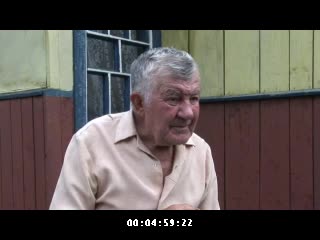
Oral history interview with Yahad-In Unum interviewee 525U
Oral History
The interviewee, a Ukrainian man born in 1927, describes events near Bakhiv, Volyns'ka oblast', Ukraine; the prewar presence of many Jews in nearby Kovel'; the names of members of one Jewish family living in Bakhiv, all of whom were shot; the shooting of a Jewish school friend; the mass shootings of Jews who were transported by train from Kovel'; the shooting site at a trench dug in a sand pit; the numerous freight trains bringing Jews to the shooting site; the covering of the ditch by Soviet prisoners of war; numerous smaller-scale shootings of Kovel' Jews and Roma. The video includes a visit by the witness and the interviewing team to the site where his friend was shot.
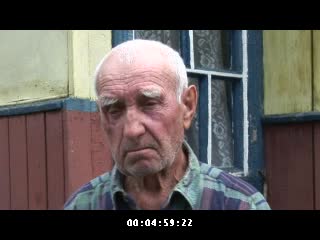
Oral history interview with Yahad-In Unum interviewee 526U
Oral History
The interviewee, a Ukrainian man born in 1926, discusses events near Bakhiv, Volyns'ka oblast', Ukraine; watching from a distance while tending cows as Jews were transported by trains to a shooting site; the trench after the shooting; the burning of clothing and the disposition of money and valuables; the repeated shootings during subsequent days; and the separate shooting of children.
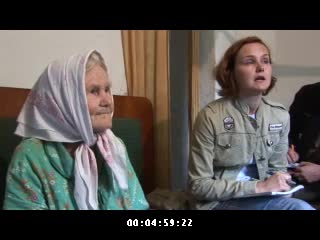
Oral history interview with Yahad-In Unum interviewee 527U
Oral History
The interviewee, a Ukrainian woman born in 1921, discusses events in Manevychi Raion and Kovel' in Volyns'ka oblast', Ukraine; evacuating with her family at the start of the war from Bakhiv to Manevychi Raion; the shooting of Jews at a sand pit; the brief refuge given by her family to a Jewish child who had climbed naked from the sand pit; watching the transport of the Jews to the shooting site by truck; the efforts of a Jewish woman with a child to escape from a moving truck; the digging of trenches by Jews from Kovel'; the trenches after the shooting; and how her parents warned her not to talk about what she had seen.

Oral history interview with Yahad-In Unum interviewee 528U
Oral History
The interviewee, a Ukrainian woman born in 1925, discusses events around Lyubeshiv, Volyns'ka oblast', Ukraine; the fighting between Belorussian pro-Soviet partisans and local anti-Soviet Ukrainian partisans; the ghetto in Lyubeshiv; the local Ukrainian administration; the requisitioning of people in Lyubeshiv, including her father, to dig a trench where Jews would later be shot; and her brother's service in the Soviet army.

Oral history interview with Yahad-In Unum interviewees 528U and 529U
Oral History
The interviewee, a Ukrainian woman born in 1941, discusses events in Lyubitivska, Volyns'ka oblast', Ukraine; the actions of her father who was the local starosta, or chief of the local administration under the German occupation; her father's prewar schooling in Germany, although he was not of German background; his reluctant service as starosta; her father's refusal of the German’s offer to take him to Germany during their retreat; her father's subsequent suicide attempt, seizure by partisans, and presumed death; the role of the starosta; the shooting of Jews; her father’s successful efforts to prevent the shooting of one person; the postwar treatment of her family by the Soviet authorities; and receiving a letter in 1949 from relatives in the United States.
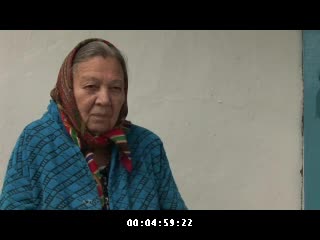
Oral history interview with Yahad-In Unum interviewee 530U
Oral History
The interviewee, a Ukrainian woman born in 1930, discusses events in Lyubeshiv, Volyns'ka oblast', Ukraine; the presence of Jews before the war; the arrival of the Germans and the initial killing of some Jews; the ghetto walls, which Jews themselves were forced to erect; the shooting of young men, then women and children; the house-to-house searching for Jews by Ukrainian police; and the temporary refuge given by her family to a Jewish woman and two children, all of whom were later killed.

Oral history interview with Yahad-In Unum interviewee 531U
Oral History
The interviewee, a Ukrainian woman born in 1929, discusses events in Zarudchi, Sudche, and Lyubeshiv in Volyns'ka oblast', Ukraine; the German occupation of Zarudchi; partisan attacks; how she was wounded; the efforts of some Jews from Sudche to flee the Germans; how her father hid four Jews; the seizure of Jews by Germans and Ukrainian police; the ghetto in Lyubeshiv; the trenches where the Jews were shot; her sister's work as a nurse in a make-shift German hospital; and the burning of Zarudchi as the Germans retreated.

Oral history interview with Yahad-In Unum interviewee 532U
Oral History
The interviewee, a Ukrainian man born in 1925, discusses events in Kovel', Volyns'ka oblast', Ukraine; the prewar presence of 35,000 Jews and three synagogues; the beginning of the Soviet occupation of the area in 1939; the arrest and imprisonment of his father for resisting collectivization; his escape from prison when the war started and the prison was hit by German bombs; the German headquarters in Kovel'; the identifying of Jews by Germans and Ukrainian police; the individual shooting of Jews and Ukrainians; seeing bodies of persons hanged for alleged crimes; the arm-bands and other markings Jews were forced to wear; the confiscation of gold from the Jewish community; the establishment of a ghetto in autumn of 1941; the ghetto and the Jewish police; witnessing the shooting of a woman and two children who tried to escape from a column of Jews; and the storing of Jewish clothing and other possessions in a Kovel' school; the first mass shooting of Jews from Kovel' at a sand pit in Bakhiv, Ukraine in the fall of 1942; the transporting of Jews to Bakhiv by train from Verbka station on the outskirts of Kovel' four times; the report that Jews went quietly to the shooting site after being told by a rabbi that this was their fate; the selecting out of Jews who were specialists or artisans; the escape from the ghetto of some Jews, particularly doctors, to the partisans; the motives of the Ukrainian police; the anti-Soviet attitudes of the populace and their welcome of German troops; partisan factions and infighting; the local administration led by the bloodthirsty German Gebietskommissar Tel'man; the postwar anti-Soviet partisan activity; and his speculation on why the Germans dealt so brutally with the Jews.
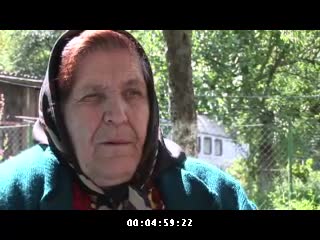
Oral history interview with Yahad-In Unum interviewee 533U
Oral History
The interviewee, a Ukrainian woman born in 1929, discusses events in Zarichchya, Kovel'skiy Raion, Volyns'ka oblast', Ukraine; seeing columns of Jews being led to a shooting site; how Soviet prisoners of war and local youths covered the ditch; and the burning of the village by Germans when they retreated.
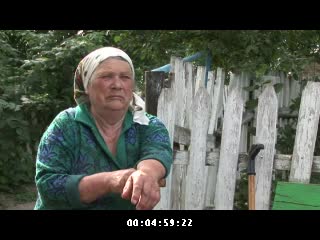
Oral history interview with Yahad-In Unum interviewees 534U and 535U
Oral History
The interviewees, a Ukrainian woman born in 1929 and a Ukrainian man born in 1918, discuss events in Gorodnitsa, (possibly Rivnens'ka Oblast) Ukraine; the herding of Jews into a barn; the shooting of Jews at a ditch; how the female interviewee was sent to Germany; how the Germans burned a local church with Ukrainians inside, including the father of the female interviewee; the Jewish presence in the area before the war; the ghetto and the Jewish efforts to get food; how the male interviewee hid a Jewish girl in his house and her eventual seizure by the Germans; the shooting of about 1,000 Jews in a Jewish cemetery, which the male interviewee observed from a distance; the gathering of clothing left by Jews and the search for hidden valuables; and a visit to the shooting site.

Oral history interview with Yahad-In Unum interviewee 536U
Oral History
The interviewee, a Ukrainian woman born in 1937, discusses events in the area of Beloye, Rivnens'ka Oblast, Ukraine (possibly Bile, Ukraine); the presence of Jews in the area; and the columns of Jews being taken to a shooting site.

Oral history interview with Yahad-In Unum interviewee 295U (1 of 2)
Oral History
The interviewee, a Ukrainian woman born in 1927, discusses events in Rata, L'vivs'ka oblast', Ukraine; the shooting of Jews brought from a ghetto (probably in nearby Rava-Rus'ka); and camps for Soviet and French prisoners of war.
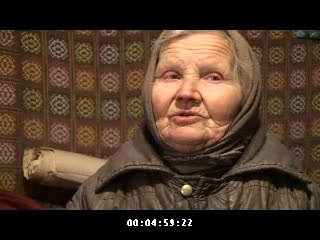
Oral history interview with Yahad-In Unum interviewee 538U
Oral History
The interviewee, a Ukrainian woman born in 1929, discusses events in Rata and Rava-Rus'ka, L'vivs'ka oblast', Ukraine, and in Belzec, Poland; the presence of many Jews as well as other ethnic groups in Rava-Rus'ka and the surrounding area; the succession of Polish, German, and Soviet rule in the area; the beginning of the war and the German occupation; the establishment of a ghetto in the center of Rava-Rus'ka; the transporting of Jews to the Rava-Rus'ka ghetto by train from other areas; the work performed by Jews and prisoners of war; seeing the shooting of individual Jews outside of the ghetto; being employed as a cleaner in the courtyard of the German headquarters; observing the transport by truck of Jews to a shooting site; the shooting site; the presence in the area of French prisoners of war, who were often unguarded; seeing trucks with bodies of Soviet prisoners of war who had been killed by bayonets; traveling with her mother to Belzec toward the end of the war; and the piles of human ashes in Belzec through which people rummaged for valuables.

Oral history interview with Yahad-In Unum interviewee 539U
Oral History
The interviewee, a Ukrainian woman born in 1932, discusses events in Rava-Rus'ka and Sokal', L'vivs'ka oblast', Ukraine; the presence of Jews in Rava-Rus'ka before the war; the establishment of a ghetto; how her family hid two young Jews who fled to Soviet forces and survived the war; watching with other children on repeated occasions as Jews from the ghetto were marched to ditch and shot; the bodies at the shooting site; the covering of the ditch; seeing the shooting of Jews who tried to escape; the transportation of some Jews by train to Sokal', where they were reportedly killed in a mobile gas chamber ("dushegubka"); the disposition of Jews' property; and the visit of the witness and interviewing team to the Rava-Rus'ka shooting site.
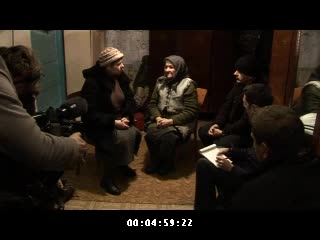
Oral history interview with Yahad-In Unum interviewee 540U
Oral History
The interviewee, a Ukrainian woman born in 1929, discusses events in Vysots'k, Rivnens'ka oblast', Ukraine; the prewar presence of Jews; the arrival of Germans and the rounding-up of Jews; the ghetto in the center of Vysots'k; the marching of Jews to a shooting site, which she observed from her house; the abandonment of belongings by Jews who knew they were going to be killed; and some details on the shooting, which she saw from a distance.

Oral history interview with Yahad-In Unum interviewee 541U
Oral History
The interviewee, a Ukrainian woman born in 1927, discusses events in Vysots'k, Rivnens'ka oblast', Ukraine; the local kolkhoz before the war; the arrival of the Germans and the establishment of a ghetto; the hiding of two Jews in her garden; Jews being marched to a shooting site; observing the shooting of a Jewish girl on the road; the requisitioning of local men to dig and subsequently cover the ditch; hearing the shooting; the return of one surviving Jew to Vysots'k; being forced to go to Germany from 1943 to 1945; the appointment of an Orthodox priest ("batyushka") as head of the local administration ("starosta") under the Germans; and the killing of the “starosta” and his family by the Soviet partisans.
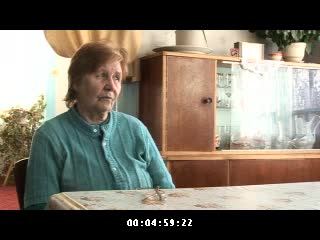
Oral history interview with Yahad-In Unum interviewee 542U
Oral History
The interviewee, a Ukrainian woman born in 1925, discusses events in Vysots'k, Rivnens'ka oblast', Ukraine; the Jewish presence before the war; the Jewish traditions she observed while working in a Jewish house as a baby-sitter; the arrival of German forces and the establishment of a ghetto; the marching of Jews from the ghetto to a shooting site; being told about a shooting and the arrangement of the bodies in a ditch; the sale of the victims' clothing to local residents; the local Ukrainian administration head ("starosta"), who was killed by partisans; partisan factions and their activity; her future husband, who survived by hiding in a forest; and their marriage after the war despite opposition from her husband's relatives living in Israel.
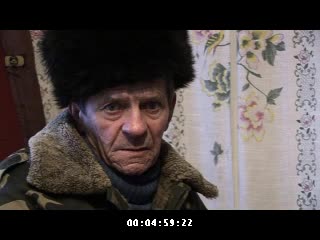
Oral history interview with Yahad-In Unum interviewee 543U
Oral History
The interviewee, a Ukrainian man born in 1937, discusses events in Sernyky, Rivnens'ka oblast', Ukraine; the presence of Jews before the war; the arrival of the Germans; his mother's work in a German kitchen; and, along with other children, seeing the ditch where Jews had recently been shot.
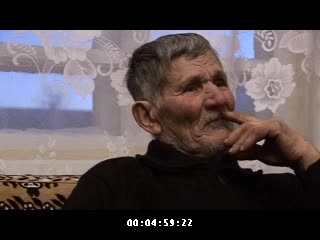
Oral history interview with Yahad-In Unum interviewees 544U and 545U
Oral History
The interviewees, a Ukrainian woman born in 1928 and a man born in 1924, discuss events in Sernyky, Rivnens'ka oblast', Ukraine; the ghetto and the efforts by Jews to obtain food; the digging of a ditch at the shooting site, which the male interviewee observed; the arrangement of the bodies; how the male interviewee was forced to help with the collection and sale of Jewish clothing and furniture, organized by the Ukrainian "starosta"; and the shooting by Germans of two Jewish children, which the female interviewee observed.

Oral history interview with Yahad-In Unum interviewee 546U
Oral History
The interviewee, a Ukrainian woman born in 1922, has difficulty remembering events in Sernyky, Rivnens'ka oblast', Ukraine.
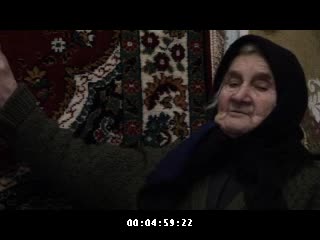
Oral history interview with Yahad-In Unum interviewee 547U
Oral History
The interviewee, a Ukrainian woman born in 1922, discusses events in Zarichne, Rivnens'ka oblast', Ukraine; the presence of a large Jewish population concentrated in the center of town; the arrival of German forces and the initial killing of 12 Jews, including a rabbi, at the Jewish cemetery; the later, large-scale shooting of Jews and their burial in a ditch; the German explanation to Ukrainians that without the Jews there would have been no war; the presence of many Ukrainian police; and her thoughts on the motives of Ukrainian collaborators, including one of her relatives.

Oral history interview with Yahad-In Unum interviewee 548U
Oral History
The interviewee, a Ukrainian woman born in 1934, discusses events in Ozero, Dubrovytsia Raion, Rivnens'ka oblast', Ukraine; the round-up of Jews and the escape of many to a nearby forest; help provided by her mother to Jews they knew in hiding; and frequently delivering food to the Jews in the forest.

Oral history interview with Yahad-In Unum interviewee 549U
Oral History
The interviewee, a Ukrainian woman (possibly ethnic Russian) born in 1941, discusses events in Sarny, Rivnens'ka oblast', Ukraine; the murder of her father before the war by members of a Ukrainian nationalist group ("Banderovtsy"); the prewar murder of Polish officers in Sarny at the time when Poles were shot in Katyn, Russia; the Sarny ghetto, which housed local Jews and some who were brought from elsewhere in the Oblast; how the ghetto was close to her house; the shooting of Jews, about which she was later told; and the presence at one time of a memorial at the shooting site, which is now the site of a sports stadium.
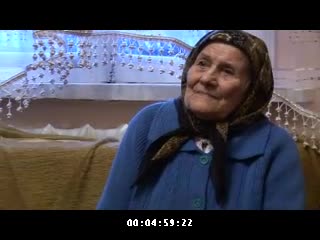
Oral history interview with Yahad-In Unum interviewee 550U
Oral History
The interviewee, a Ukrainian woman born in 1912, discusses events in Sarny, Ukraine, which is three kilometers from her village; the prewar presence of many Jews in Sarny, who were largely merchants and artisans and "rich"; the departure of many Jews when the Soviets seized the area in 1939; the arrival of Germans in 1941 and the confining of Jews in the ghetto; details on the ghetto; the shooting of Jews in the summer of 1941, about which she heard but did not see; and the disposition of Jewish property.

Oral history interview with Yahad-In Unum interviewee 551U
Oral History
The interviewee, a Ukrainian man born in 1926, discusses events in Yulyanivka, ZHytomyrs'ka oblast', Ukraine; the arrival of Germans and a firefight with Soviet troops, which he observed; details on many ethnic Germans who lived in Yulyanivka, some of whom formed the local occupation administration; details on the local administration, including the system of group leaders ("desyatniki") and the requisitioning of food supplies from residents; the prewar absence of Jews in the village; the occasional visits by German officers; the threat of night-time partisan activity; and the piles of dead bodies outside a camp for Soviet prisoners of war, which he observed near the city of Zhitomir.

Oral history interview with Yahad-In Unum interviewee 552U
Oral History
The interviewee, a Ukrainian woman born in 1926, discusses events in Sarny, Rivnens'ka oblast', Ukraine; the prewar presence of Jews, mostly store owners and artisans; the arrival of German troops and the establishment of an "arbeitsamt" to round up youths to send to Germany; the local occupation administration; the establishment of a ghetto area where Jews were kept for about a month; being told that Jews were taken to nearby Orlivka and shot; and the German treatment of Roma.

Oral history interview with Yahad-In Unum interviewee 553U
Oral History
The interviewee, a Ukrainian woman born in 1931 and her older brother, discuss events in Volodymyrets', Rivnens'ka oblast', Ukraine; the ghetto area in the center of town; bringing milk to a family in the ghetto whom her mother knew; the refusal of her mother to take in a Jewish child because of the German death penalty for doing so; witnessing the gathering of Jews in the central square, where they were told to deposit their gold; the Ukrainian administration; the taking of Jews to a shooting site 3 km from town, where four ditches had been prepared; a report that prior to the shooting a rabbi had said a prayer, telling the Jews that "their time had come;" reports that some Jews had climbed out of a ditch and had escaped to the forest; and details on the disposition of Jewish clothing and other belongings.
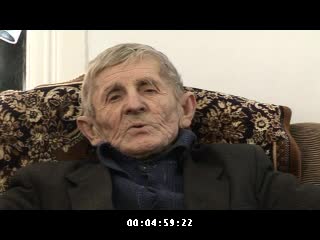
Oral history interview with Yahad-In Unum interviewee 554U
Oral History
The interviewee, a Ukrainian man born in 1930, discusses events in Volodymyrets' Rivnens'ka oblast', Ukraine; a chaotic two-week period in 1941 between the retreat of Soviet authorities and the arrival of German forces when Ukrainians from Mul'chytsi plundered Jewish property; the arrival of German troops and establishment of a local administration under a "politsmeister;" details on the local administration and the role of neighborhood foremen ("desyatniki"); the system of food deliveries to Germans, in which Ukrainians, including his father, were forced to participate; the confining of Jews to their houses; the initial shooting of individual Jews in the streets; the killing of an Ukrainian family that had given refuge to Jews; the gathering of Jews in the central square where they turned in valuables; being told about the shooting of Jews at ditches some 3 km from town; the disposition of Jewish belongings; and the treatment of Roma.

Oral history interview with Yahad-In Unum interviewee 555U
Oral History
The interviewee, a woman born in 1921, discusses events in Volodymyrets' and Dubina, Rivnens'ka oblast', Ukraine; the prewar Jewish community; the plunder by "Bulbovtsy" and other Ukrainian groups; the arrival of Germans; partially observing the mass shooting of Jews; details on ditches in which Jews were buried; the escape of some Jews, most of whom were caught; how her family provided overnight refuge to a Jewish man; and her thoughts on individual Jews and a Ukrainian collaborator named in a report of the Soviet investigating commission.

Oral history interview with Yahad-In Unum interviewee 556U
Oral History
The interviewee, a Ukrainian woman born in 1914, discusses events in Berezove, Rivnens'ka oblast, Ukraine; the presence of Jews before the war; the arrival of German forces; the confining of Jews to their houses; how Jews from surrounding villages were brought to Berezove, where they moved in with Jewish residents; observing the marching of Jews to a shooting site; the ditches at the shooting site, which her husband observed; the failed efforts of some Jews to escape from the ditch; the separate shooting of individual Jews, and her observation of one of these murders; and how her husband was forced to cart bodies to the ditch.

Oral history interview with Yahad-In Unum interviewee 557U
Oral History
The interviewee, a Ukrainian woman born in 1914, discusses events in Berezove, Rivnens'ka oblast, Ukraine; the presence of Jews before the war; the arrival of German forces; the confining of Jews to their houses; how Jews from surrounding villages were brought to Berezove, where they moved in with Jewish residents; observing the marching of Jews to a shooting site; the ditches at the shooting site, which her husband observed; the failed efforts of some Jews to escape from the ditch; the separate shooting of individual Jews, and her observation of one of these murders; and how her husband was forced to cart bodies to the ditch.
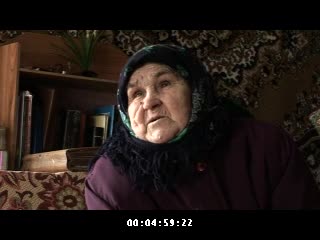
Oral history interview with Yahad-In Unum interviewee 558U
Oral History
The interviewee, a Ukrainian woman born in 1928, discusses events in Berezove, Rivnens'ka oblast, Ukraine; the lenient treatment of Ukrainians by German forces; Ukrainian police and their uniforms; the ditch where Jews were shot; partially observing the shooting of Jews; seeing a ditch partially filled with bodies; witnessing the motions of the victims not yet dead and their gasping sounds ("dykhaniya"); how only the Jews with good clothing were required to undress; the subsequent separate shooting by Ukrainian police of a Jewish woman named Etka; and her father's refusal, because of fear, to give refuge to a Jew who came to their house, although he provided food.

Oral history interview with Yahad-In Unum interviewee 559U
Oral History
The interviewee, a woman born in 1930, discusses events in Berezove, Rivnens'ka oblast, Ukraine; the pre-war Jewish community, which included a ritual slaughterer but not a rabbi; the arrival of German forces; how Jews from other villages were brought to Berezove, where they were housed with local Jews; the ability of Jews to move around the town under observation by police; the requirement that wooden star-shaped signs be affixed to Jewish houses and that Jews wear circular yellow patches on the front and back of their clothes; the escape of some Jews, most of whom were later caught and shot; how the Jews were gathered in the center of the village and marched to the shooting site; the shooting of a Russian family, whom were mistaken for Jews; witnessing the subsequent individual shootings of Jews by Ukrainian police; the Ukrainian police; and the post-war visits by relatives of the victims.

Oral history interview with Yahad-In Unum interviewee 560U
Oral History
The interviewee, a Ukrainian woman born in 1923, discusses events in Berezove, Rivnens'ka oblast, Ukraine; the Jewish presence before the war; a Jewish schoolmate of hers, Etka, and her sister, one of whom was later killed; the rounding up of Jews and being told about the later mass shootings; observing some individual shooting incidents; and giving temporary food and refuge to a Jewish girl, whom was later caught and shot.

Oral history interview with Yahad-In Unum interviewees 561U and 562U
Oral History
The interviewee, a Ukrainian man born in 1923 and woman born in 1930, discuss events in Hlynne (Glinnoye), Rivnens'ka oblast', Ukraine; his service in the Soviet Army beginning in 1944; the pre-war presence of four or five Jewish families in Hlynne and the lack of details about their fate; reports that thousands of Jews had been killed in nearby Berezove; the efforts of the local German-appointed “starosta” in Glinne to prevent Ukrainian youths from being sent to Germany; reports that the “starosta” was connected to the "Kovpak" partisan group; the German requisitioning of food supplies; and partisan groups and his service with partisans.

Oral history interview with Yahad-In Unum interviewee 563U
Oral History
The interviewee, a Ukrainian woman born in 1932, discusses events in Sarny, Rivnens'ka oblast', Ukraine; the presence of a small number of Jews in Sarny before the war; the arrival of German forces; the establishment of two ghettos, one in the center of town and one near the cooking oil factory; how Jews were brought to Sarny from surrounding villages; watching with other children as the Jews were marched along Sovetskaya street to the shooting site; the silent and resigned air of Jews and the impression among Ukrainians that Jews believed "this was their fate;" hearing shooting throughout the day; the digging of the ditch at the shooting site; being told about the shooting process; the participation of Ukrainian police; the disposal of Jewish clothing and valuables; and the shooting of Roma.

Oral history interview with Yahad-In Unum interviewee 564U
Oral History
The interviewee, a Ukrainian man born in 1926, discusses events in Khochyn and Rokytne in Rivnens'ka oblast', Ukraine; the arrival of German forces; joining the "Saburov" partisan detachment in 1942; the partisan units, their activities, and his partisan experiences; the heavy presence of partisans in the area and the tendency of German forces to remain in their bases; the attack by Ukrainian nationalist partisans--"Banderovtsy"--on the largely Polish village of Kupel', Ukraine; the Germans' use of cooperative Soviet prisoners of war (known in the area as "Kazaki") to help guard rail lines; the Ukrainian police; learning later about the mass shooting of Jews from Rokytne and the surrounding area at a wooded site 2 or 3 km from Rokytne on July 15, 1941; the escape of some Jews, eight or ten of whom joined his partisan unit; member of his unit including Boris Shvartsblatt, a Jewish former teacher who became a political officer in the unit, and Olshevskiy, a decorated partisan who later went to Israel; his speculation on why Germans had a policy of killing Jews; how the Germans killed the entire population of Staro Selo after the local Orthodox priest informed on partisans in the village; the role of "desyatniki" in the occupation administration; the police uniforms; and the weapons used by the police.
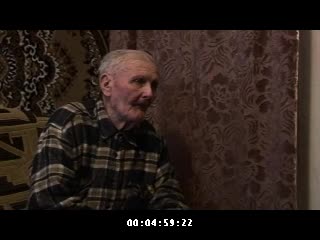
Oral history interview with Yahad-In Unum interviewee 565U
Oral History
The interviewee, a Ukrainian man born in 1915, discusses events in Sernyky and Morochne in Rivnens'ka oblast', Ukraine; the succession of Polish, Soviet, German, and partisan rule; how the area's Jews were brought to Morochne during the German occupation and were housed briefly in a barn; the requisitioning of residents to dig a large ditch 2-3 km from town; observing five groups of about 100 Jews each being led to the ditch; being told about the shooting of the Jews; and the disposal of Jewish clothing.
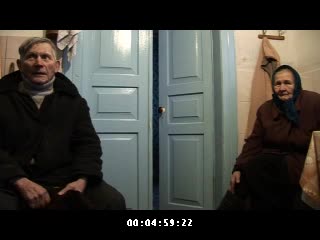
Oral history interview with Yahad-In Unum interviewees 566U and 567U
Oral History
The interviewee, a Ukrainian man born in 1924 and woman born in 1931, discuss events in Prykladnyky and Morochne, in Rivnens'ka oblast', Ukraine; how there were only three Jews in Prykladnyky before the war, all of whom fled before the arrival of the Germans; being told by her family about the killing of 500 Jews in Morochne; the taking of clothes and jewelry; the participation of Ukrainian police; and her view that the victims had concluded this was their "fate" because they had "killed Christ."

Oral history interview with Yahad-In Unum interviewees 568U and 569U
Oral History
The interviewee, a Ukrainian woman born in 1930 and man born in 1936, discuss events in Morochne, Rivnens'ka oblast', Ukraine; seeing groups of Jews being marched to a shooting site; and learning that 500 Jews from Morochne had been killed.
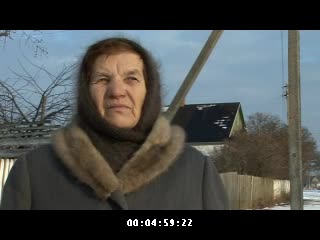
Oral history interview with Yahad-In Unum interviewees 570U and 571U
Oral History
The interviewees, a Ukrainian woman (born in 1933) and her brother (born in 1929), discuss events in Kalynivka and neighboring Stepan' in Rivnens'ka oblast', Ukraine; the pre-war presence of many Jews in Stepan'; the arrival of German forces and the establishment of a ghetto; Jewish work parties; a Jewish blacksmith named Koval, who was allowed to work outside the ghetto and quartered for more than a year with their family; how she observed the march of Jews to the shooting site in Kalynivka in August 1942; the ditch and the shooting process, which he observed with other children from the top of a hill about 100 meters away; observing two of the shooters later and how they appeared to be drunk; the failed efforts of some Jews to escape. The interview includes a visit to the shooting site and a view of the stone memorial.

Oral history interview with Yahad-In Unum interviewee 572U
Oral History
The interviewee, a Ukrainian woman born in 1930, discusses events in Kalynivka and Stepan' in Rivnens'ka oblast', Ukraine; the large Jewish population in Stepan' before the war; her mother's work for a Jewish family; the establishment of a ghetto in Stepan'; running with other children to watch a column of Jews being marched to a shooting site near Kalynivka; hearing the terrible sounds of crying and moaning and shooting; being chastised by her mother for having taken two pins from clothing left by the Jews; and seeing one Jew killed as he tried to run.

Oral history interview with Yahad-In Unum interviewee 573U
Oral History
The interviewee, a Ukrainian woman born in 1933, discusses events in Stepan' and neighboring Kalynivka in Rivnens'ka oblast', Ukraine; her family's pre-war business relations and friendship with the family of a Jewish tailor; spending time with Ol'ga, the tailor's daughter, who was the same age as her, at a Jewish summer dacha; the confinement of the tailor's family in the Stepan' ghetto; sneaking into the ghetto on frequent occasions with food for Ol'ga and her family; observing from her house as columns of Jews were marched to the shooting site; and saying goodbye to Ol'ga, who was in the column.

Oral history interview with Yahad-In Unum interviewee 574U
Oral History
The interviewee, a Ukrainian man born in 1924, discusses events in Mizoch, Rivnens'ka oblast', Ukraine; observing from his house as Jews were marched to a shooting site; the shooting; the efforts of some Jews to escape; and how Jewish clothing was taken by some Ukrainians. The recording includes a visit by the witness and the interviewing team to the shooting site in a ravine.

Oral history interview with Yahad-In Unum interviewee 722U
Oral History
The interviewee, a Ukrainian woman born in 1919, discusses events in Shchyrets', L'vivs'ka oblast', Ukraine; the advent of Soviet rule in 1939 and the refusal of many, including her father, to work on a kolkhoz; his subsequent imprisonment; the presence of many Jews before the war and their relative prosperity; the existence of two synagogues in Shchyrets; and her lack of any knowledge as to what happened to local Jews.

Oral history interview with Yahad-In Unum interviewee 723U
Oral History
The interviewee, a Ukrainian woman born in 1930, discusses events in Shchyrets', L'vivs'ka oblast', Ukraine; Jews being held in one of two synagogues in Shchyrets'; watching Jews being marched from the synagogue to the railway station; her mother's account of having seen Jews shot trying to flee; the ghetto, which was located on her street; her father's work transporting bodies of dead Jews in his wagon; Ukrainian police and Jewish ghetto police; her father's account of hundreds of Jews being shot at a nearby ditch, which he observed from a distance; the killing of Jewish police after the destruction of the ghetto; the survival of some Jews who had hidden; her father’s refusal to hide a Jew, who came to their house, because of his fear that the Germans would kill the family; and the discovery of gold and other valuables in the course of post-war pipe-laying excavations in the ghetto area.
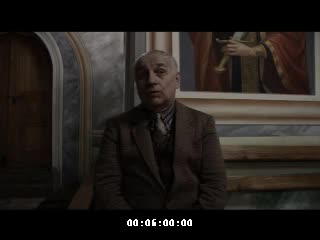
Oral history interview with Yahad-In Unum interviewee 724U
Oral History
The interviewee, a Ukrainian man born in 1939, discusses events in Shchyrets', L'vivs'ka oblast', Ukraine; the presence of many Jews before the war; and his father's work delivering goods to Jewish stores.

Oral history interview with Yahad-In Unum interviewee 725U
Oral History
The interviewee, a Ukrainian man born in 1938, discusses events in Shchyrets', L'vivs'ka oblast', Ukraine; his father's work delivering wood and other goods to Jewish customers; and his father's reports that Jews had been shot and that he was required to transport bodies in his wagon.

Oral history interview with Yahad-In Unum interviewee 726U
Oral History
The interviewee, a Ukrainian man born in 1932, discusses events in Shchyrets', L'vivs'ka oblast', Ukraine; the NKVD’s killing of 28 people in prison immediately prior to the arrival of German forces; the burning of the synagogue by Germans; a few details on Ukrainian and Jewish police; the brief existence of a ghetto; and the report that Jews were taken from the ghetto to a railway station.
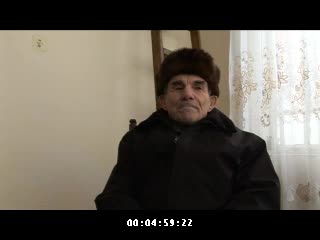
Oral history interview with Yahad-In Unum interviewee 727U
Oral History
The interviewee, a Ukrainian man born in 1929, discusses events in Horodok (Gorodok), L'vivs'ka Oblast, Ukraine; the pre-war presence of around 2,000 Jews in Horodok; the beginning of Soviet rule in 1939; the refusal of his father to join a kolkhoz and his subsequent exile to Siberia; evacuation of a neighboring Jewish family before the arrival of Germans and the return of a family member with Soviet troops later in the war; the post-war efforts of a Jewish town official to make the former ghetto area a memorial square; the abandonment of the memorial project after a wave of antisemitism in 1949; and construction of a bus station at the ghetto site.

Oral history interview with Yahad-In Unum interviewee 728U
Oral History
Drawing on written accounts and on what he learned from his mother, a Ukrainian city official born in 1946 discusses events in Horodok (Gorodok), L'vivs'ka oblast', Ukraine; the local administration instituted after the arrival of the Germans in September 1941; the deportation of many wealthy Jews during this period, including one Rothstein, a factory owner; details on the killing by NKVD of political prisoners held in Horodok prisons prior to the September 1941 arrival of German forces; the establishment of the ghetto, which held about 6,000 Jews, including Horodok residents, refugees from Poland, and Jews from the surrounding area; details on the ghetto and on ghetto work parties; a description of intermittent shooting "actions" interspersed with periods of relative quiet; the presence of French prisoners of war held in a local monastery; and the reading of an eye-witness account of the shooting of 20 Jews.

Oral history interview with Yahad-In Unum interviewee 729U
Oral History
The interviewee, a Ukrainian man born in 1929, discusses events in Horodok (Gorodok), L'vivs'ka oblast', Ukraine; the pre-war presence of Jews; the Soviet takeover in 1939; the outbreak of war and the hurried evacuation of Soviet officials; the arrival of German forces; the prevalence of German-speakers among the new local administration and "amoral" persons among the Ukrainian police; an early "aktion" in which younger Jewish men were gathered in the central square and taken by truck and reportedly shot; the establishment of a ghetto on the site of the current bus station; details on the ghetto; seeing Jews being marched to work outside of the ghetto, guarded by Jewish police, who were "sometimes worse than Germans;" words of a Polish song, which marching Jews often sang; following with other children a column of Jews being led from the ghetto to the shooting site in 1942; details on the column of Jews and on the "drunk" Germans guarding them; seeing one Jew fleeing the column and hiding in the reeds; hearing shooting that lasted all day; the drunken condition of German troops, who had been trucked in for the shooting, and the presence of some Russians in German uniforms; the later killing of Jews herded into a sugar refinery, which then was set on fire; the names of some Jews who survived by either hiding or evacuating before the Germans’ arrival; the local police units, including "criminal" police which locals often called "Polish" police; the underground movement in Horodok, which after the war was directed against Soviet authority; and his view that under the Soviets and during the war, Ukrainian victims outnumbered Jewish victims.

Oral history interview with Yahad-In Unum interviewee 730U
Oral History
The interviewee, a Ukrainian man born in 1937, discusses his recollection of having seen wagons with bodies pass his house on the outskirts of Horodok (Gorodok), L'vivs'ka oblast', Ukraine during the war.
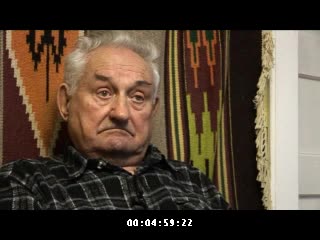
Oral history interview with Yahad-In Unum interviewee 731U
Oral History
The interviewee, a Ukrainian man born in 1930, discusses events in Horodok (Gorodok), L'vivs'ka oblast', Ukraine; the arrival of the Germans; the shooting of old people from the Jewish community and the establishment of a ghetto; the collection of Jewish money and valuables; the establishment of a Judenrat and Jewish police; the employment at German headquarters of a Jewish female neighbor named Fridman who spoke German; the subsequent murder of Fridman and some other Jews at a nearby shooting range; the killing of some 200 Jews when a sugar refinery was burned down before the liquidation of the ghetto; hearing shots and screams and smelling burning flesh as a result of this event; the participation of Russian "Vlasovtsy," who sifted through ashes carted from the refinery building; the arrival of special German troops from Slonsk, Poland for the liquidation of the ghetto; hearing the day-long sounds of gunfire as ghetto Jews were shot at a large ditch; the subsequent searching by local people for money and valuables at the shooting site; the killing of Roma at a shooting range; the lack of post-war Soviet interest in honoring Jewish victims at the shooting site; his arrest in 1951 for participating in the Ukrainian nationalist underground; and his exile to a mine in Vorkuta, Russia.
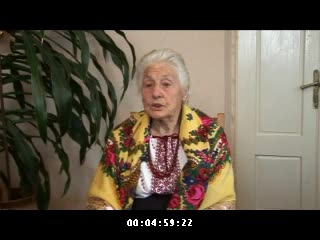
Oral history interview with Yahad-In Unum interviewee 732U
Oral History
The interviewee, a Ukrainian woman born in 1923, discusses events in Bibrka, L'vivs'ka oblast', Ukraine; the Jewish presence before the war; the arrival of the Soviets in 1939 and arrest and deportation of many local citizens; the situation of Jews under Soviet rule; the murder by Soviets of many prisoners just prior to the arrival of German forces in 1941; the first "aktion" against Jews in 1942; details on the ghetto and the Jewish police; observing the trucking of Jews to a shooting site about 2 km outside town; seeing a young Jewish acquaintance being separately led away to a shooting; being told about the mass shooting; the occupation of ghetto houses by Soviet troops after the Germans retreated; the search of the ghetto area by citizens and Soviet troops for valuables hidden by Jews; and details on the German and local administrations during the occupation.

Oral history interview with Yahad-In Unum interviewee 733U
Oral History
The interviewee, a Ukrainian man born in 1931, discusses events in Strilke (possibly Strilky) L'vivs'ka oblast, Ukraine near Bibrka, Ukraine; the prewar presence of Jews; some details on the ghetto in Bibrka and efforts of the ghetto occupants to procure food; being told about the mass shooting of Jews; hearing shooting throughout the day; seeing a naked man trying to flee the shooting site; the subsequent shooting of Jews at a brick factory; and the easy access to the empty ghetto and the search by citizens for valuables hidden by Jews.

Oral history interview with Yahad-In Unum interviewee 734U
Oral History
The interviewee, a Ukrainian man born in 1923, discusses events in Bibrka, L'vivs'ka oblast', Ukraine; the pre-war presence of about 2,000 Jews and some details on their activities; the arrival of German forces and their prior knowledge of local German speakers, including his father; the use by Germans of Jewish specialists, such as blacksmiths and doctors, including an interpreter named Grebel', all of whom were later killed; attendance by many German soldiers at church services; visits to Bibrka by wives of German soldiers; the Bibrka ghetto; the escape of the Jewish movie theater owner, Mr. Neuman, whom had been told to flee by a German police officer; and being told about the shooting of Jews in a brickyard.

Oral history interview with Yahad-In Unum interviewee 735U
Oral History
The interviewee, a Ukrainian man born in 1927, discusses events in Bibrka, L'vivs'ka oblast', Ukraine; being forced, along with other young males, to dig a ditch in sandy soil in a brickyard; details on the ditch; watching from a distance as Jews were shot in the ditch; details on the shooting process; being forced by Germans to carry furniture from Jewish houses to a collection point in the synagogue; finding large quantities of Soviet money in drawers and cabinets; how the Jewish furniture and clothes were taken by local citizens; some details on Ukrainian police; and the exhumation of some Jewish bodies in 1943 by Germans.

Oral history interview with Yahad-In Unum interviewee 736U
Oral History
The interviewee, a Ukrainian woman, born in 1926, discusses events in L'viv, L'vivs'ka oblast', Ukraine; arriving in L'viv from nearby Zvenigorod, Russia in 1942 to study; frequently seeing Jewish men being marched from the ghetto to work sites and their condition; and feigning an illness to avoid being taken to work in Germany.

Oral history interview with Yahad-In Unum interviewee 737U
Oral History
The interviewee, a Ukrainian man born in 1918, discusses events in L'viv, L'vivs'ka oblast', Ukraine; his imprisonment by Polish authorities from 1936 to 1939 for his Ukrainian nationalist activities; his subsequent work at the L'viv railway station; the prewar presence of Jews; a period of chaos in L'viv after the retreat of the Soviets and before the arrival of the Germans; the arrival of German forces and the location of German headquarters; the arrival, along with the Germans, of Ukrainian nationalists under Stefan Bandera and the Nachtigall unit; being member of a rival Ukrainian nationalist group, led by Andrey Mel'nikov; the arrest of Jews and Poles and the establishment of a ghetto; hearing about the shooting of Jews at the Yanovskiy cemetery by Germans and Ukrainian police; public hangings in L'viv; and an on-camera visit to a L'viv street bordering the former ghetto and the shooting site at the Yanovskiy cemetery.
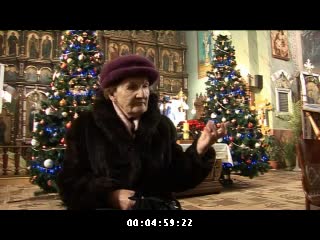
Oral history interview with Yahad-In Unum interviewee 738U
Oral History
The interviewee, a Ukrainian woman born in 1929, discusses events in Yavoriv (Jaworow or IAvoriv), L'vivs'ka oblast', Ukraine; the arrival of the Germans, which many people initially thought would bring an improvement compared to life under the Soviets; the establishment of a ghetto; her father's bakery firm, which continued to supply products to shops as well as to German forces; the ghetto and her attempt to visit a Jewish neighbor, who sewed a coat for her; seeing Jews in the ghetto being taken by trucks to a shooting site near the cemetery; and the local police force, which included many Poles.

Oral history interview with Yahad-In Unum interviewee 739U
Oral History
The interviewee, a Ukrainian man born in 1922, discusses events in Yavoriv (Jaworow or IAvoriv), L'vivs'ka oblast', Ukraine; being a laborer for German occupation forces first in L'viv, Ukraine and then at German headquarters in Yavoriv; seeing a Jew hanging from a balcony on a building at the perimeter of the Yavoriv ghetto; observing, while on a work detail on the outskirts of town, Jews digging a ditch some 200 meters in the distance; seeing and hearing the subsequent shooting of Jews at the ditch; the shooting procedure [although it is unclear whether the witness actually observed all of them]; and description of an unnamed local police officer, who was notorious for his cruelty.

Oral history interview with Yahad-In Unum interviewee 740U
Oral History
The interviewee, a Ukrainian woman born in 1930, discusses events in Yavoriv (Jaworow or IAvoriv), L'vivs'ka oblast', Ukraine; the prewar presence of many Jews; the arrival of the Germans; the establishment of a ghetto; the collection of gold and other valuables from Jews; the killing by a "Volksdeutsche" person of a Jew who had come to their house for food; some details on the ghetto; seeing Jews near her house being marched to a shooting site; being told about the shooting; a small group of Jews, including Badyan, a former leader of the Jewish community, who hid in her neighbors’ barn and to whom she brought water on one occasion; the subsequent escape of the group, which was abetted by a German soldier who refrained from firing at them; telling her father that she did not see any Jews; the presence of some graves of Germans, killed by partisans, which were later paved over by the Soviets; her praise of the "Jewish people" and her fond recollections of her Jewish neighbors, the Gutmans, who gave her refuge during the June 1941 bombing and used to call her their "shiksa;" and mention of Artur Solomonvich Teller, a local editor who left for Israel.
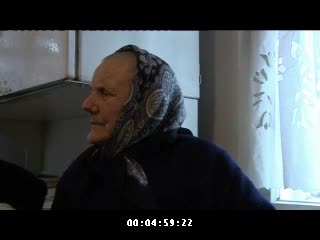
Oral history interview with Yahad-In Unum interviewee 741U
Oral History
The interviewee, a Ukrainian woman born in 1921, discusses events in Yavoriv (Jaworow or IAvoriv), L'vivs'ka oblast', Ukraine; the prewar Jewish presence in Yavoriv; the production by Ukrainian families, including her own, of handicrafts bought by Jews elsewhere; the arrival of Soviet authorities in 1939; digging defensive trenches just prior to the arrival of German forces; the establishment of a ghetto; seeing columns of Jews being led from the ghetto to the train station and being told they were put into freight cars; the killing of some Jews near Yavoriv; the role of “desyatniki” [foremen] under the Germans and Soviets; her comments on the suffering of Ukrainians during Soviet and German occupation; and her tribulations during her exile in Siberia from 1950 to 1960.
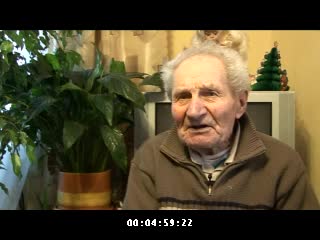
Oral history interview with Yahad-In Unum interviewee 742U
Oral History
The interviewee, a Ukrainian man born in 1915, discusses events in Yavoriv (Jaworow or IAvoriv), L'vivs'ka oblast', Ukraine; prewar life in Yavoriv involving various social, musical, and sports clubs; the arrival of German forces and the round up of Jews; watching from his house as a Ukrainian man pointed out a Jewish woman trying to hide from a German round-up squad; the shooting of Jews at a wooded site at the edge of town, where they had been brought by truck; details on the ditch where Jews were shot; a discussion of various persons mentioned in a Soviet investigative commission report; his comments on a German police officer named Wolf, whom he once drove in his wagon to collect meat from farmers; and mention of his imprisonment in L'viv, Ukraine by Soviets in 1945.
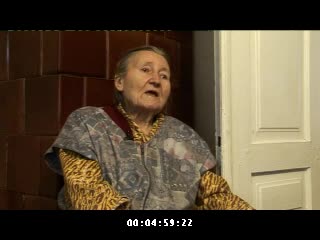
Oral history interview with Yahad-In Unum interviewee 743U
Oral History
The interviewee, a Ukrainian woman born in 1924, discusses events in Yavoriv (Jaworow or IAvoriv), L'vivs'ka oblast', Ukraine; the arrival of German forces and the herding of Jews into a ghetto; watching as Germans took his Jewish neighbors from their houses; seeing Germans shoot the neighbors' little boy who had resisted being taken; and the subsequent burning of the ghetto by Germans.

Oral history interview with Yahad-In Unum interviewee 744U
Oral History
The interviewee, a Ukrainian man born in 1937, discusses events in Yavoriv (Jaworow or IAvoriv), L'vivs'ka oblast', Ukraine; the Jewish presence in Yavoriv; the establishment of a ghetto and its subsequent destruction; the shooting of Jews; seeing a Jewish woman being taken to the cemetery and shot; collecting cartridge casings at the shooting site with his brother.
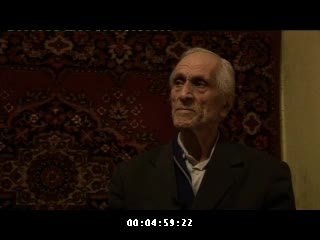
Oral history interview with Yahad-In Unum interviewee 745U
Oral History
The interviewee, a Ukrainian man born in 1923, discusses events in Yavoriv (Jaworow or IAvoriv), L'vivs'ka oblast', Ukraine; the difficulties for Ukrainians during the period of Polish rule; being in a group of Ukrainians beaten by a Polish punitive detachment; schools in Yavoriv under Polish and later Soviet rule; the large-scale arrests by Soviets after their arrival; the shooting of prisoners just prior to the Soviet’s retreat in 1941; being imprisoned by the Soviets in 1945; his desire as a youth to join the Ukrainian Insurgent Army (UPA); and his disdain for the Polish partisan group AK (Armia Krajowa), which he claimed was anti-Ukrainian as well as anti-German and had attacked Ukrainian villages.

Oral history interview with Yahad-In Unum interviewee 746U
Oral History
The interviewee, a Ukrainian woman born in 1933, discusses events in Yaktoriv (IAktoriv), L'vivs'ka oblast', Ukraine; how the Germans established a camp for local Jews and those from nearby villages on the grounds of a monastery located near Yaktoriv on the road to L'viv, Ukraine; frequently seeing, while she tended cows, Jews being marched to work on roads and in quarries; the uniforms the Jews wore and a Ukrainian song they often sang; the subsequent shooting of Jews after 4 to 6 months at a site on Lepovitsy mountain; and being told about the shooting.

Oral history interview with Yahad-In Unum interviewee 747U
Oral History
The interviewee, a Ukrainian woman born in 1936, discusses events in Yaktoriv (IAktoriv), L'vivs'ka oblast', Ukraine; her vivid memories of seeing Germans shoot two Jewish girls, one name Pusya and one Ruvtya, who lived in the house opposite of hers with their parents, Leba and Gidal; how Jews were brought from Peremyshliany (Przemyslany), L'vivs'ka oblast', Ukraine to a camp in Yaktoriv; seeing Jews being taken by truck and wagon to a ditch in a sand quarry, where they were shot; and the current condition of the shooting site, where human bones are still occasionally found.

Oral history interview with Yahad-In Unum interviewee 748U
Oral History
The interviewee, a Ukrainian man born in 1935, discusses events in Yaktoriv (IAktoriv), L'vivs'ka oblast', Ukraine (note that he occasionally consults a book on Yaktoriv history which he wrote); the housing of Jews from the area in a ghetto on the grounds of the Grushka monastery; details on the ghetto; his contention that Jews were put to work digging a trench for a telephone cable connecting Berlin, Germany and Hitler's headquarters in Vinnytsia, Ukraine; witnessing the shooting of a small Jewish child held aloft in a ghetto guard tower; seeing, while tending cows, groups of Jews being taken to the shooting site; watching the shooting from a distance; the prewar presence of about 20 Jewish families in Yaktoriv; a distillery established by Jews; how some Jews were able to escape to the nearby forest, which was home to pro-Soviet partisans (UPA Ukrainian nationalists); remnants of the defeated SS Galicia Division after 1944; and the continuing skirmishes in the forest for years after the war. The witness and the interviewing team visit the Grushka monastery grounds showing the camp layout as well as the location of a stone quarry, where Jewish men worked and from which some were able to flee and hide. The interviewee discusses another camp for Jews in Chervone, Ukraine, which is about 30km away, where Jews were also digging a trench for the Berlin-Vinnytsia cable; witnessing the shooting of some Jews near the monastery; and how the victims were thrown in pits, which local people used to dispose of animal carcasses. The witness and the interviewing team also visit the area of the mass shooting, where he points out his location at the time and that of a sandy depression where Jews were shot. He describes the physical appearance of victims being led to the site. They also visit the outside of an uninhabited house where the Jewish family of Moysa and Dysia Gendel' lived.

Oral history interview with Yahad-In Unum interviewee 749U
Oral History
The interviewee, a Ukrainian man born in 1929, discusses events in Yaktoriv (IAktoriv), L'vivs'ka oblast', Ukraine; the location in the Grushka monastery of a camp for Jews brought from the surrounding area, including the towns of Peremyshlyany (Peremyshliany) and Glynyany (Hlyniany); details on a nearby rock quarry where Jewish men worked breaking rocks for use on roads; the commandeering of local Ukrainians, including himself, to transport food from the ghetto to Jews working at the quarry; details on the ghetto kitchen and on food that he, with his father's horse and wagon, drove to the quarry; details on the quarry and on the guards; observing Jews being taken by truck to the shooting site on Lypivtsi (Lipovtsy) mountain; and seeing a woman being shot at the edge of the forest and later being buried by some Jews.

Oral history interview with Yahad-In Unum interviewee 750U
Oral History
The interviewee, a Ukrainian man born in 1932, discusses events in Sambir, L'vivs'ka Oblast; the prewar presence of many Jews; the arrival of German forces in 1941; the initial roundup of Jews, and witnessing the shooting of a man trying to escape the Germans; witnessing from a distance, along with other boys, the preparation for the initial shooting of Jews at the Jewish cemetery; after about a year, the establishment of a ghetto area in the center of Sambir, to which local Jews and those from surrounding towns were brought; some details on Ukrainian and Jewish police; the employment of ghetto inmates at grain warehouses, one of which was in a synagogue, and lumber depots; on one occasion bringing food to Jews at the grain warehouse, which was near his mother's place of work; observing columns of Jews being taken from the ghetto to the shooting site at the Jewish cemetery; being temporarily mistaken for a Jew and later securing an "Ausweis" confirming that he was Ukrainian. The interviewee and the film crew visit a city street where the witness points out where he saw a German soldier shoot a Jew trying to escape the initial round-up, and they visit the area of the shooting near the former Jewish cemetery.





